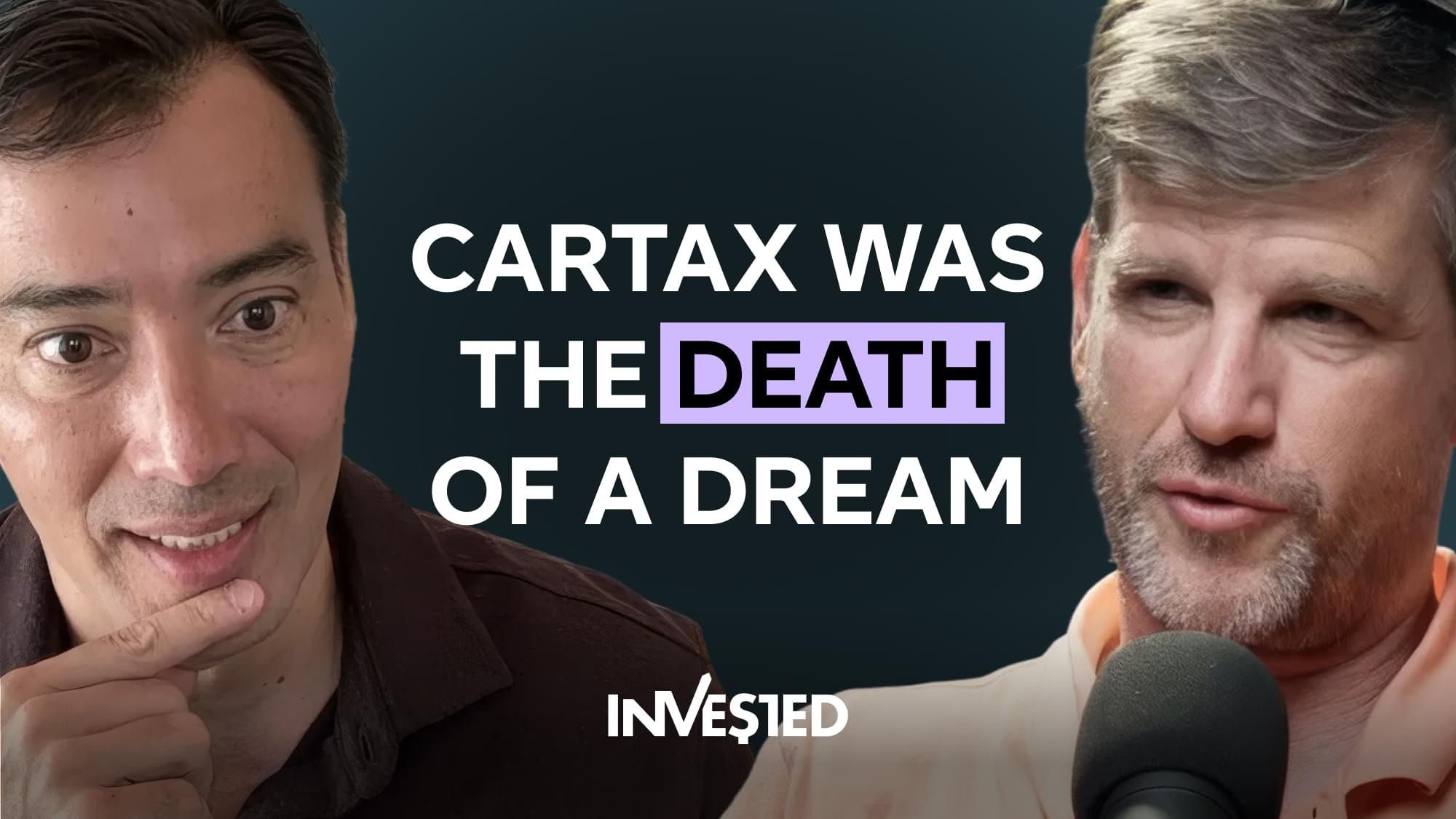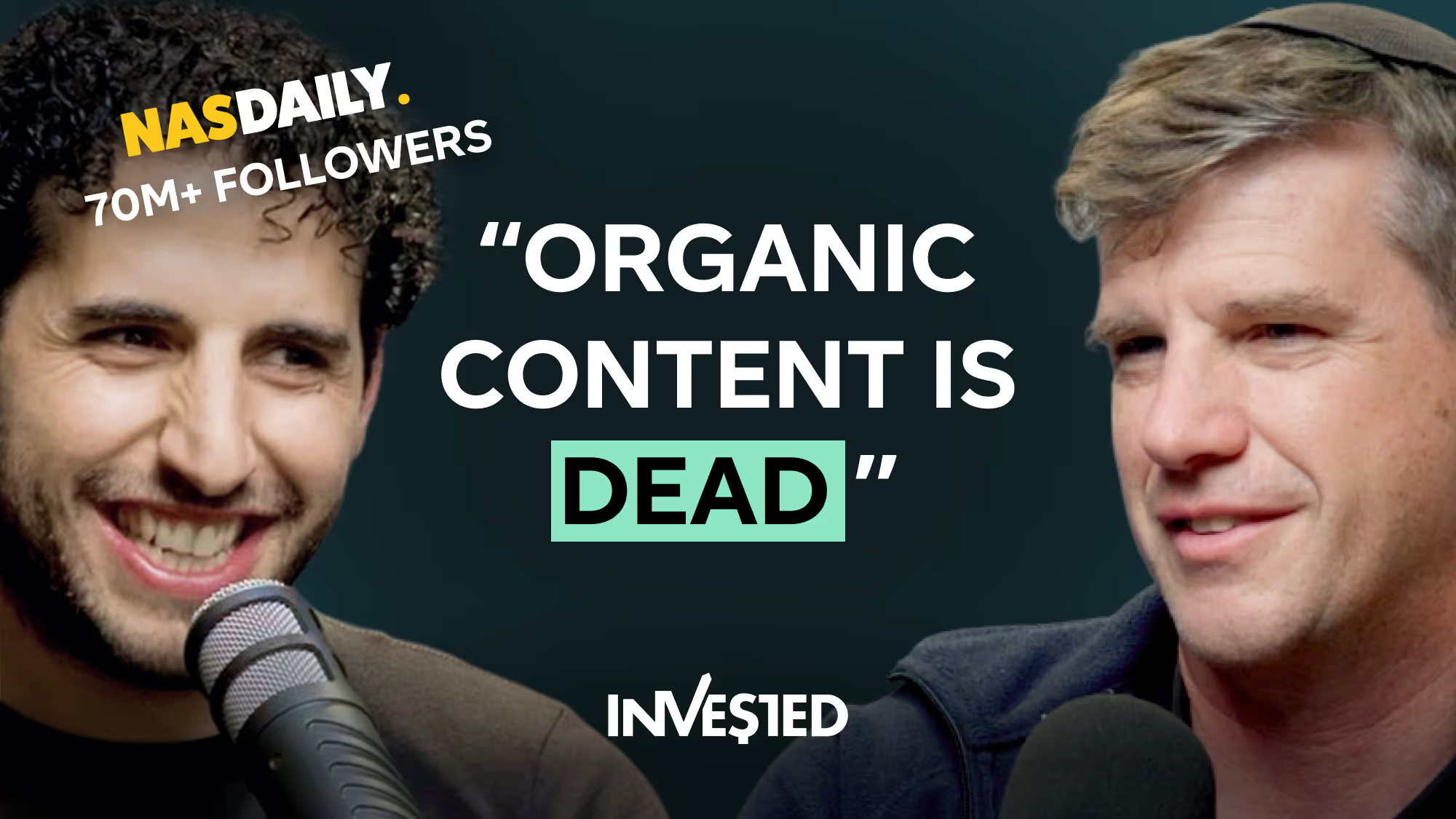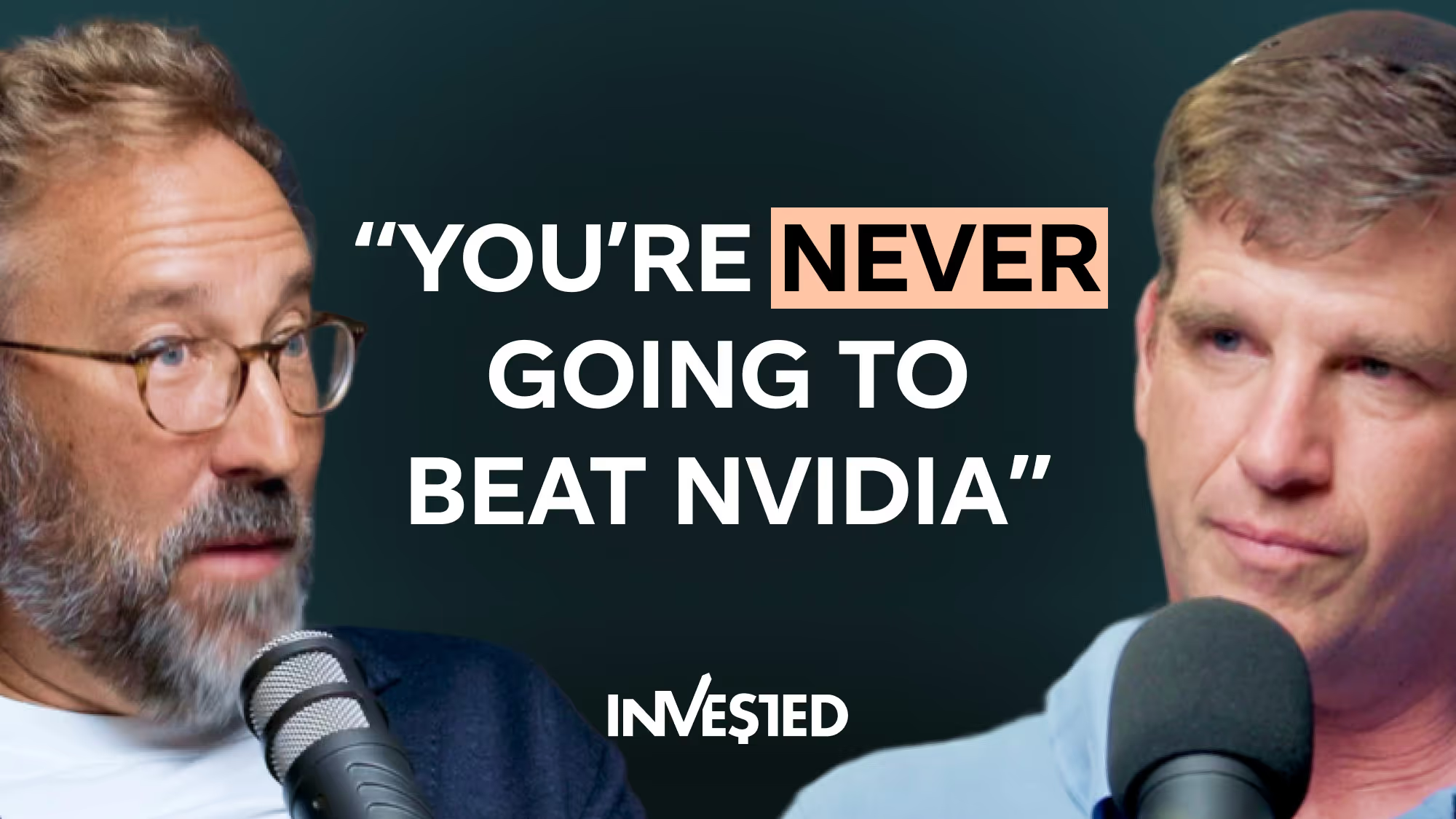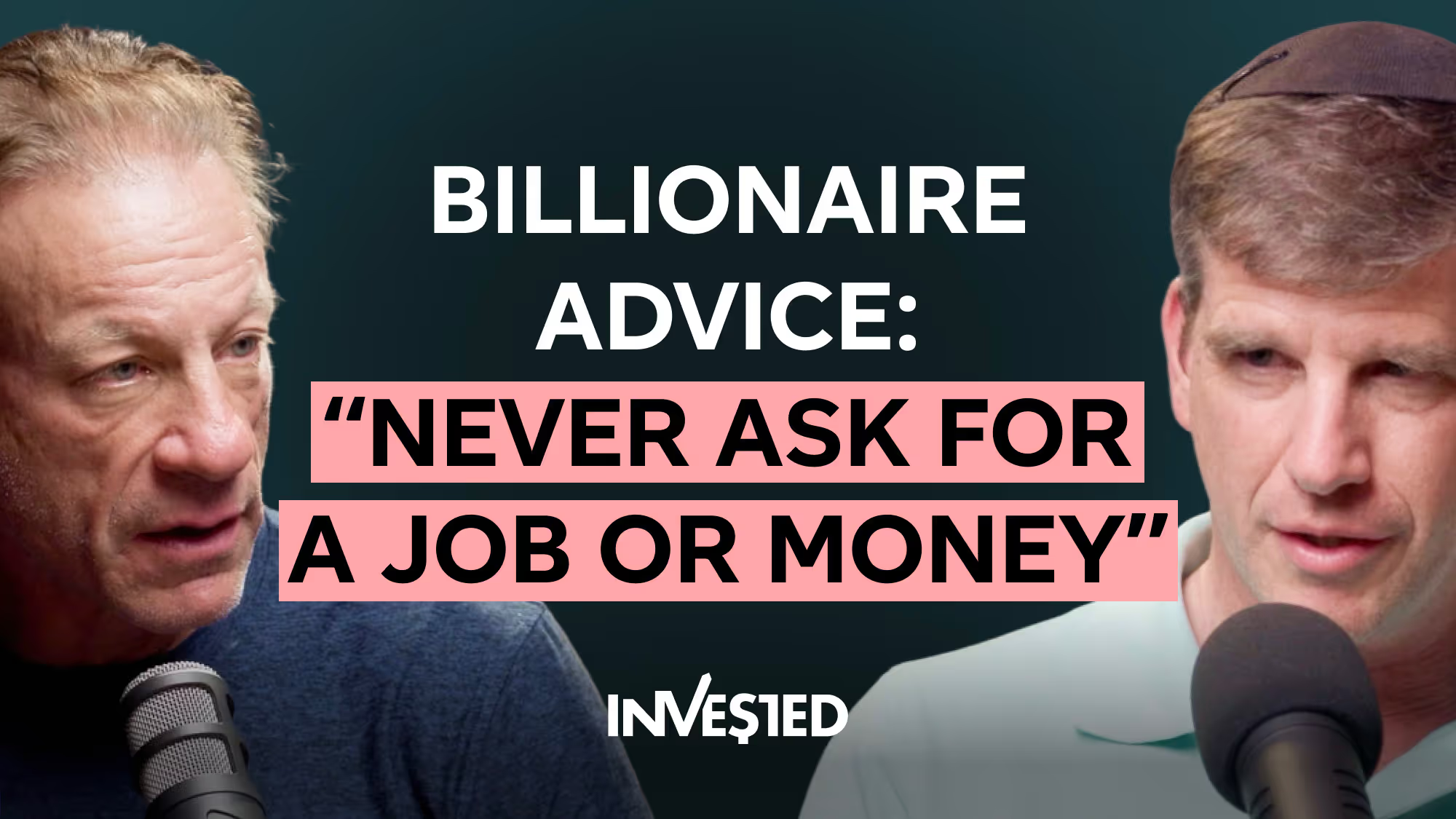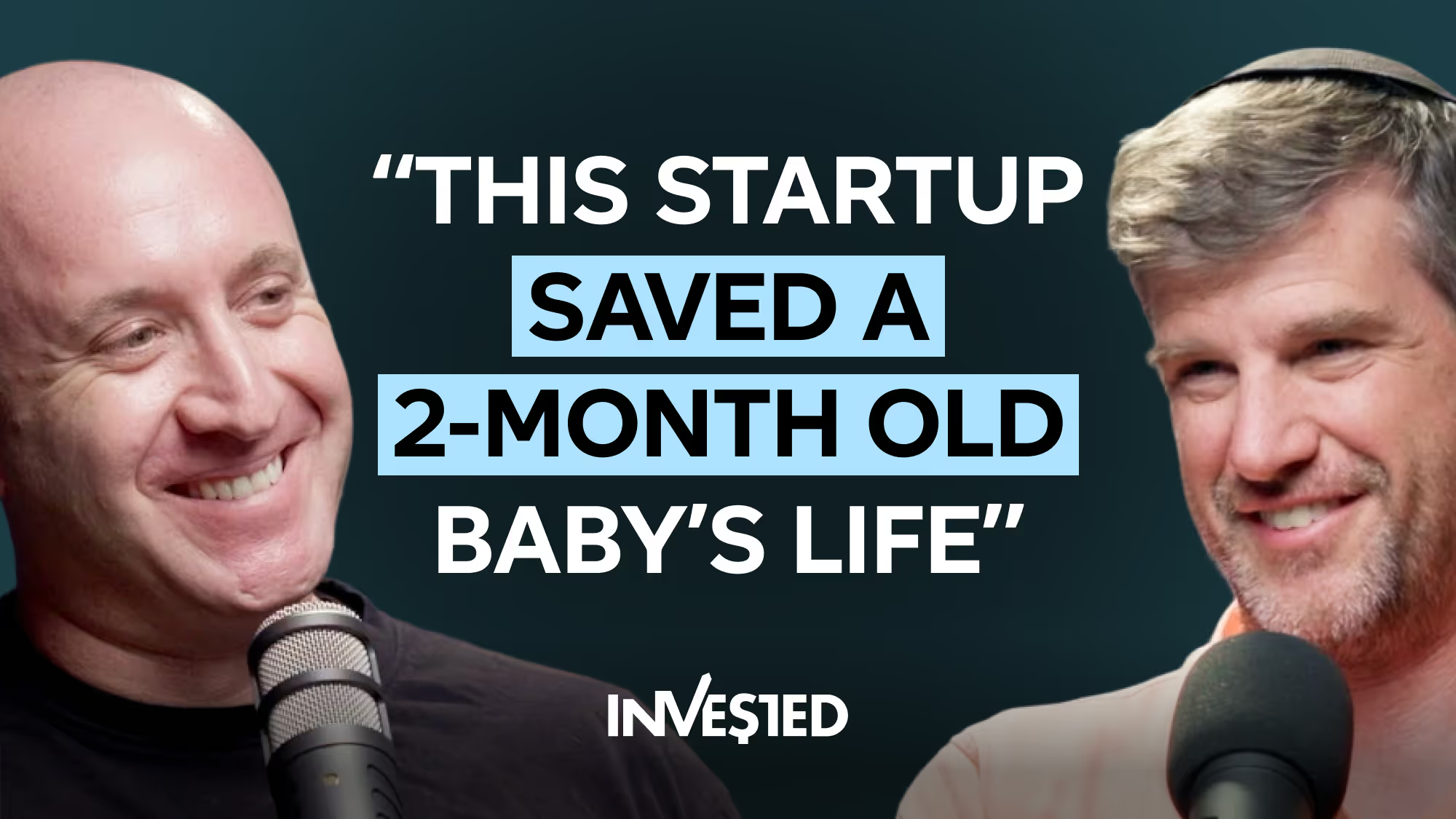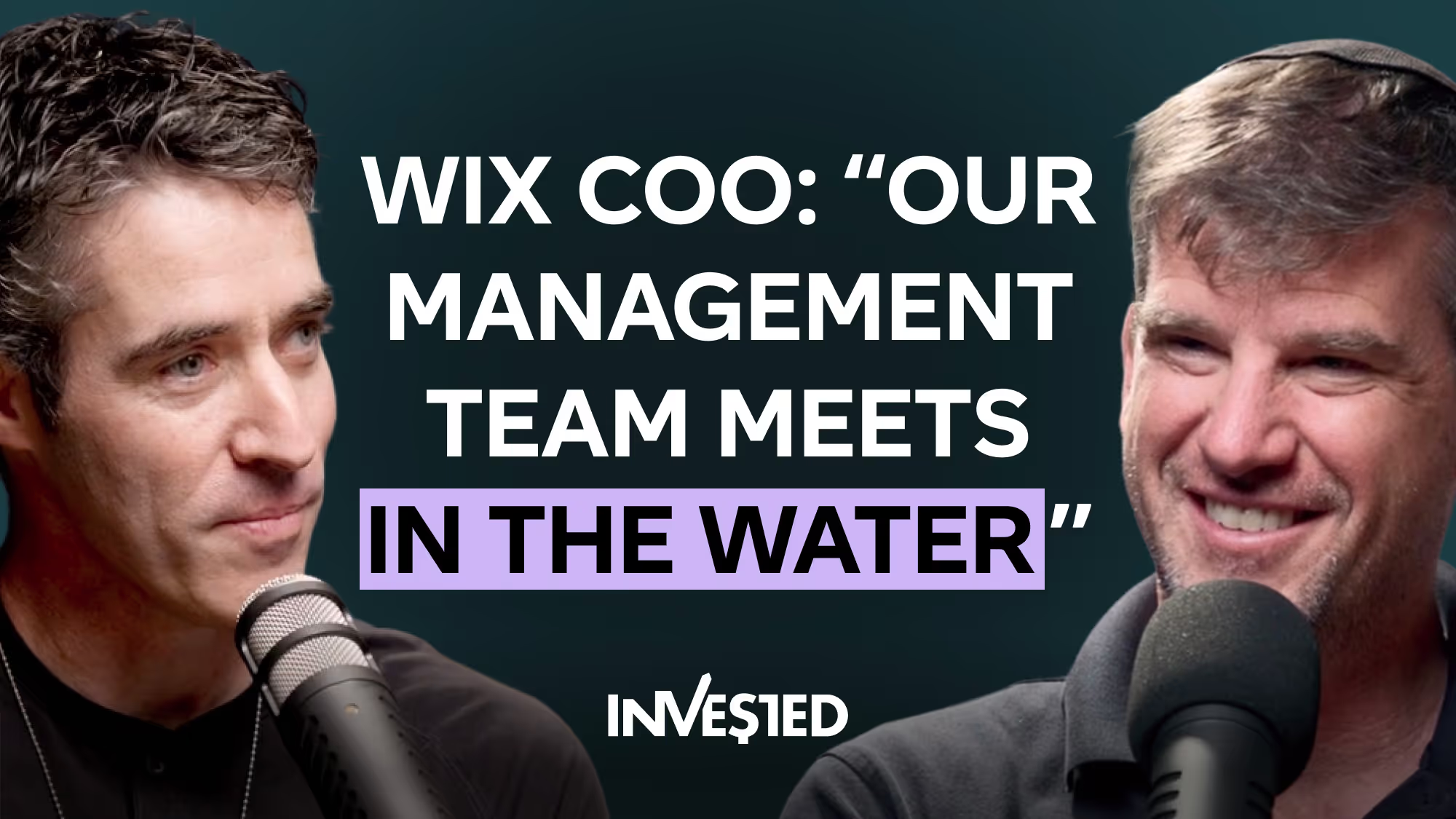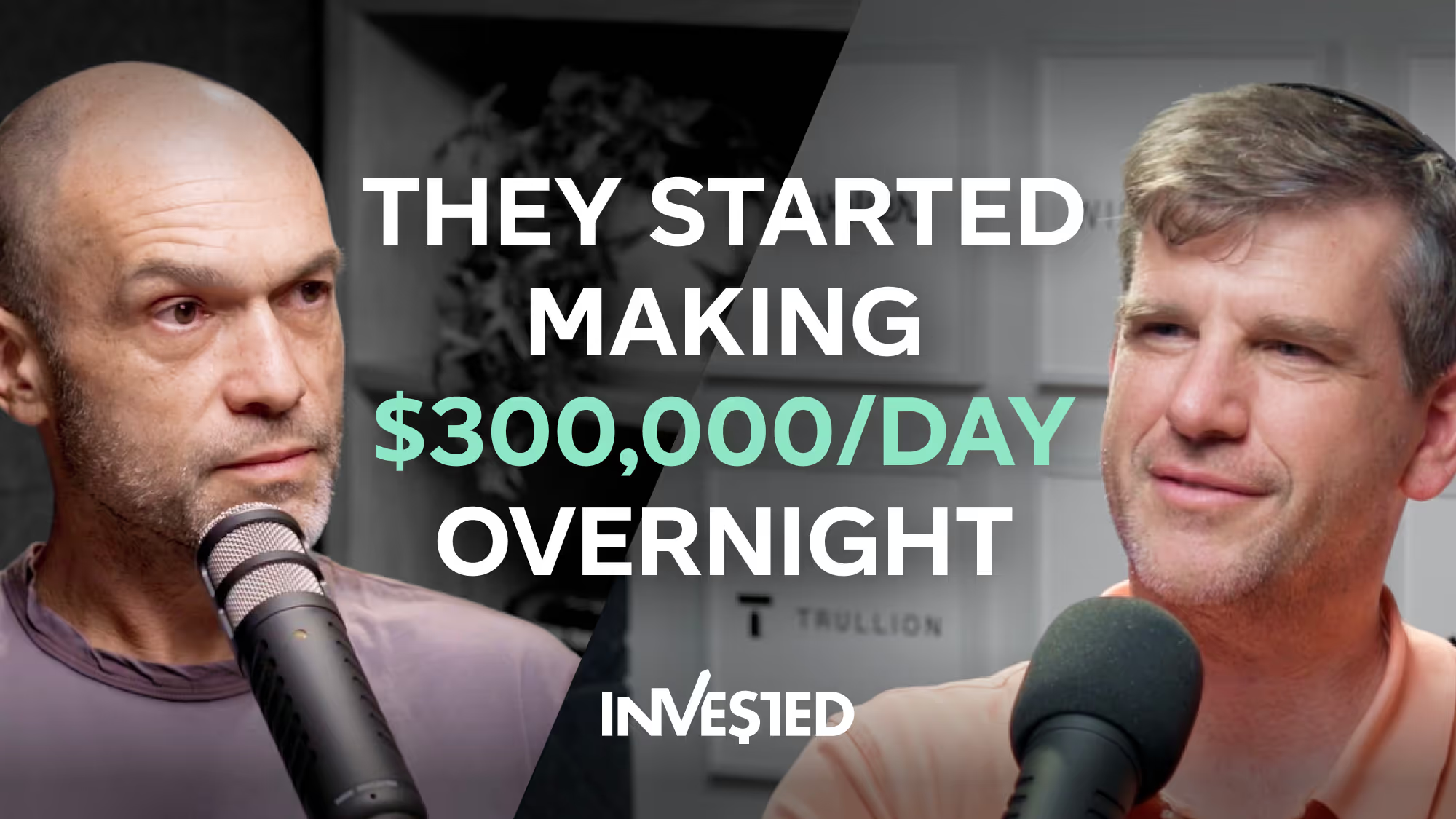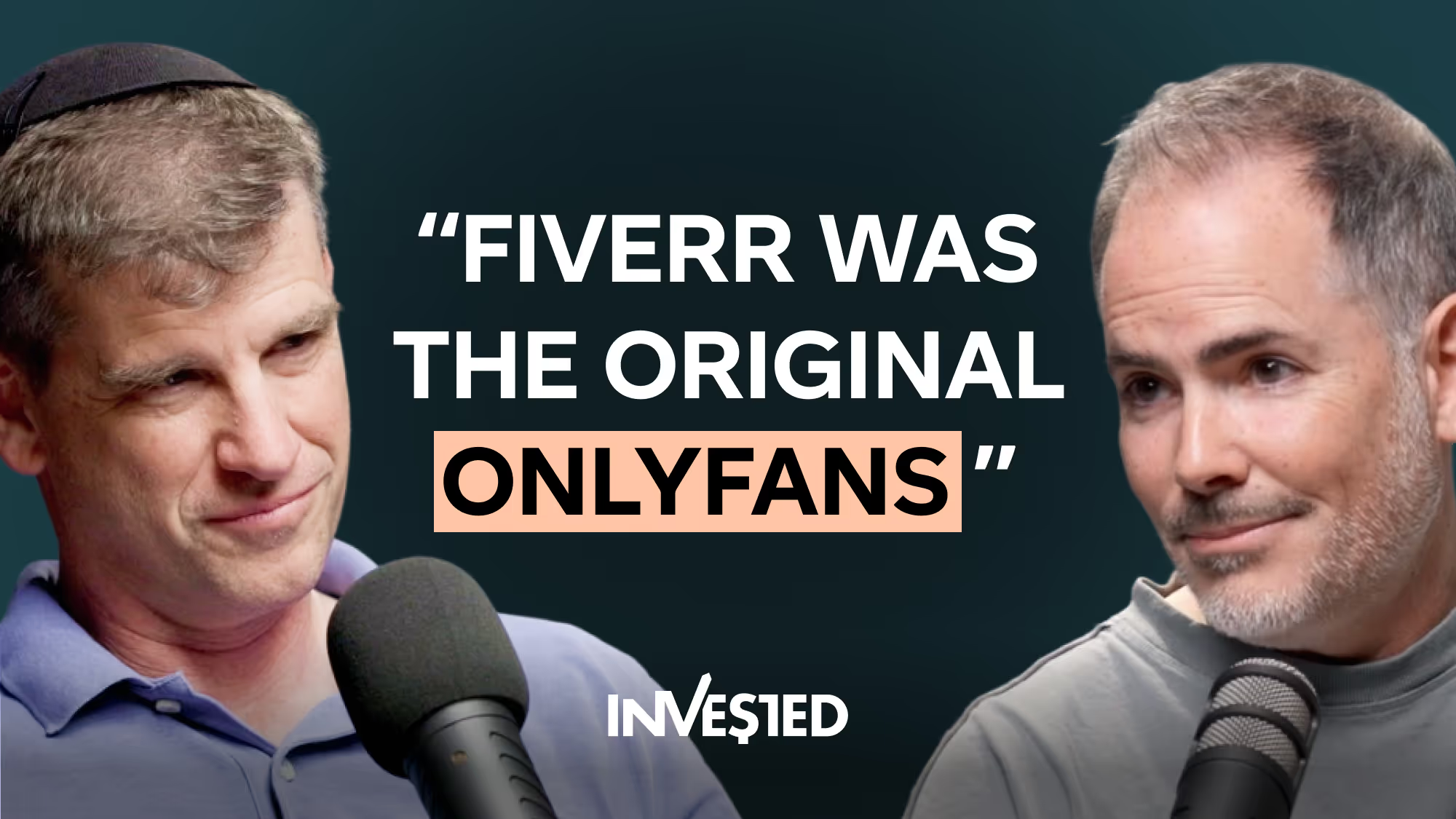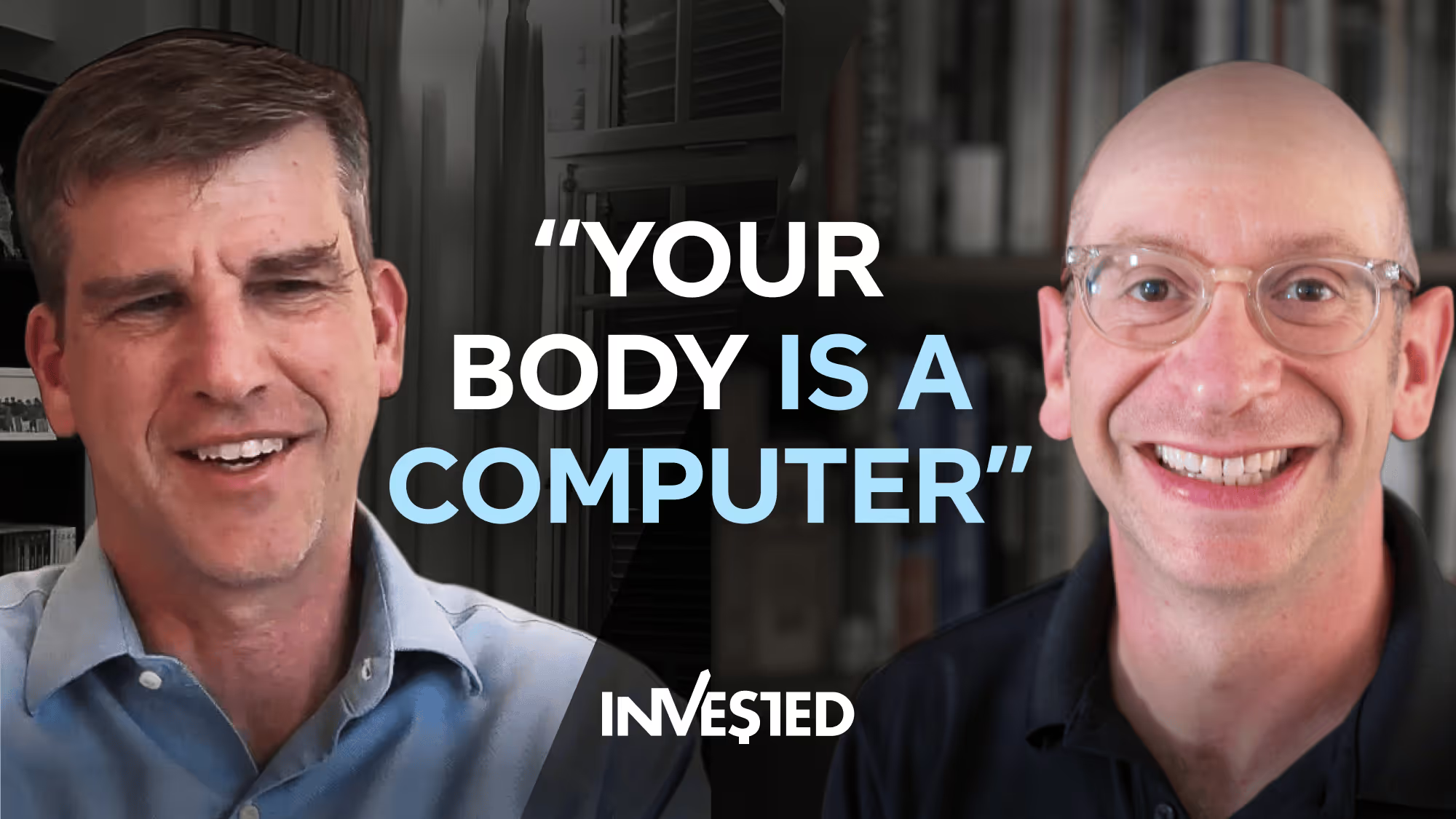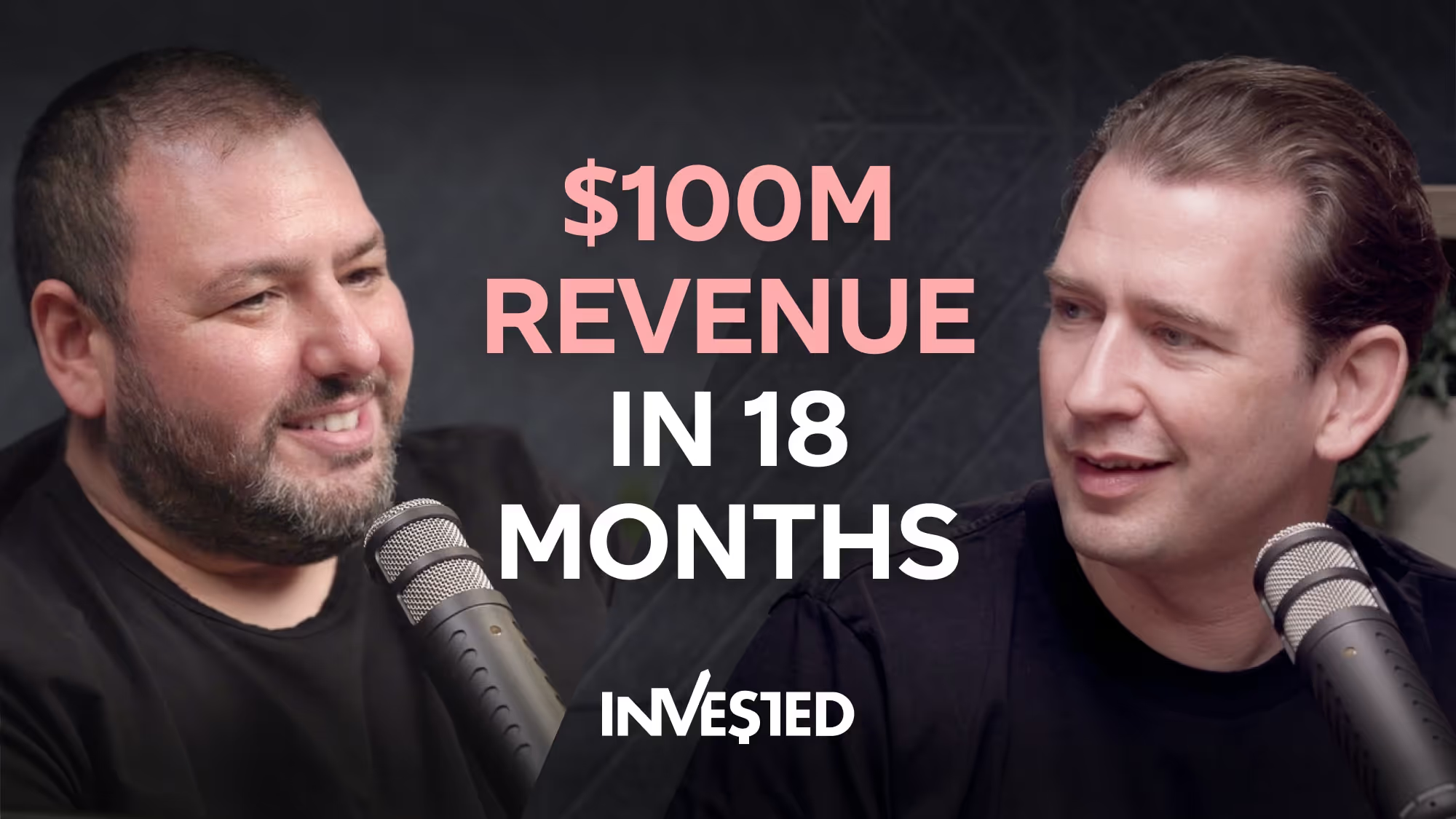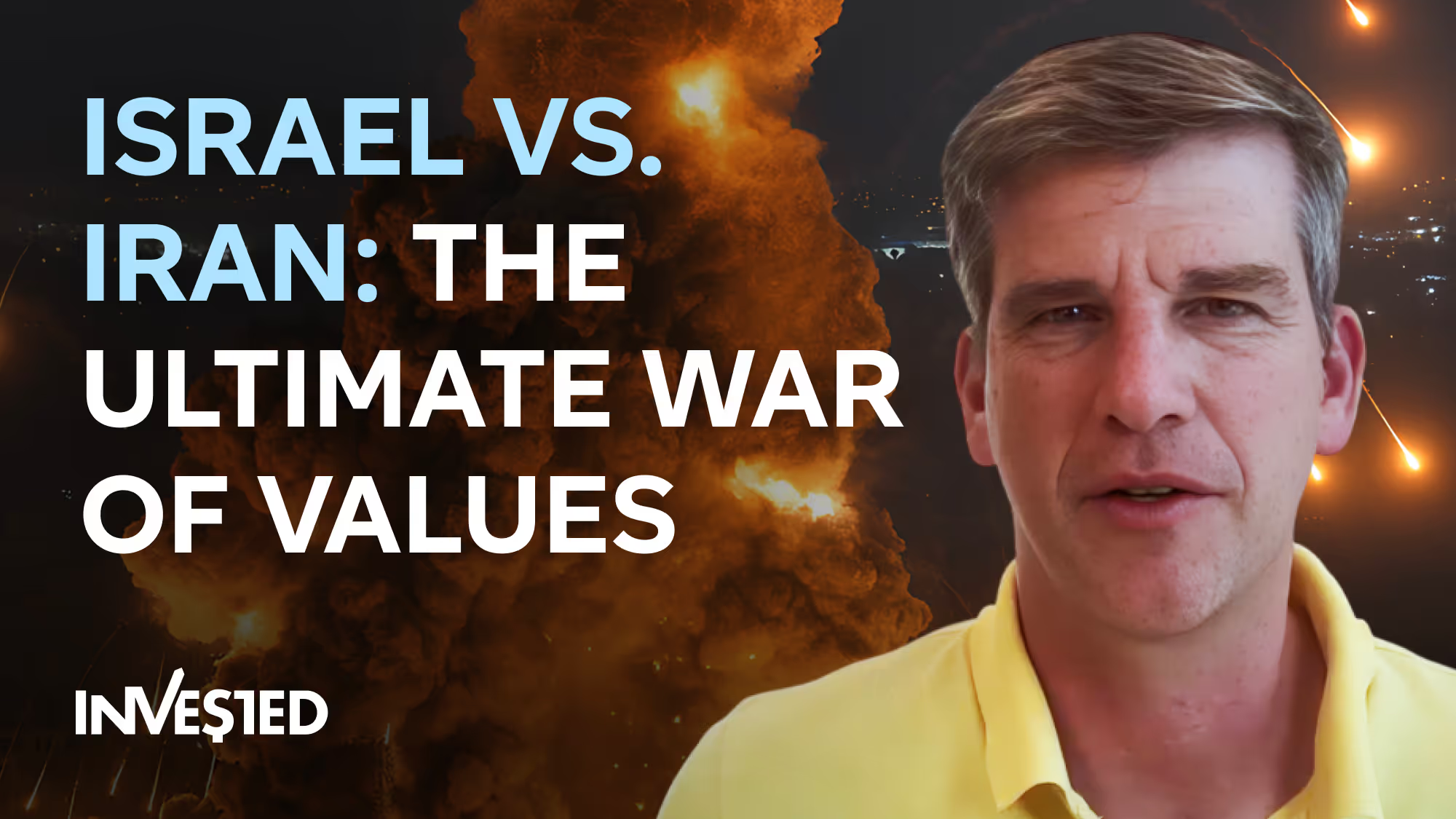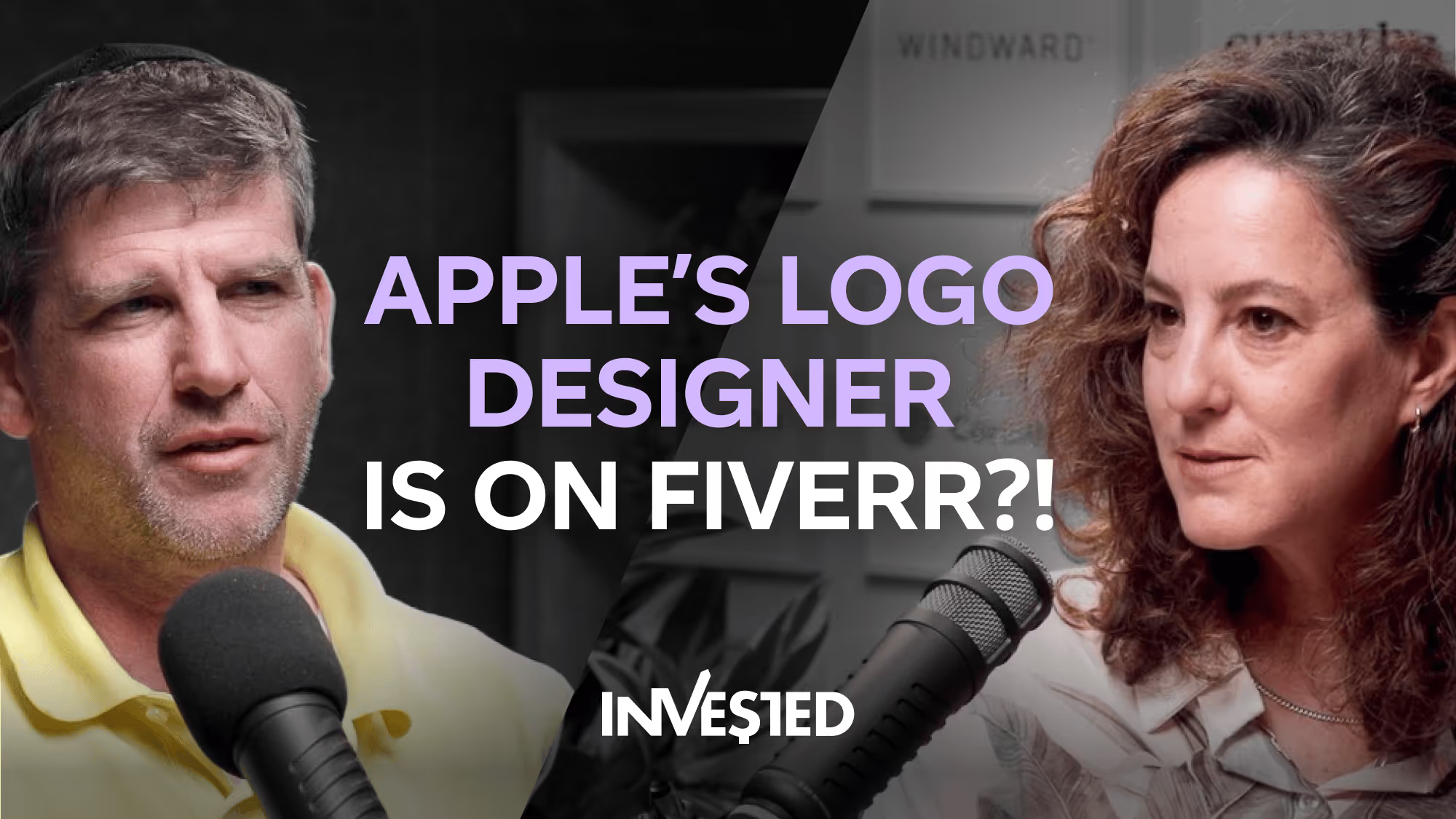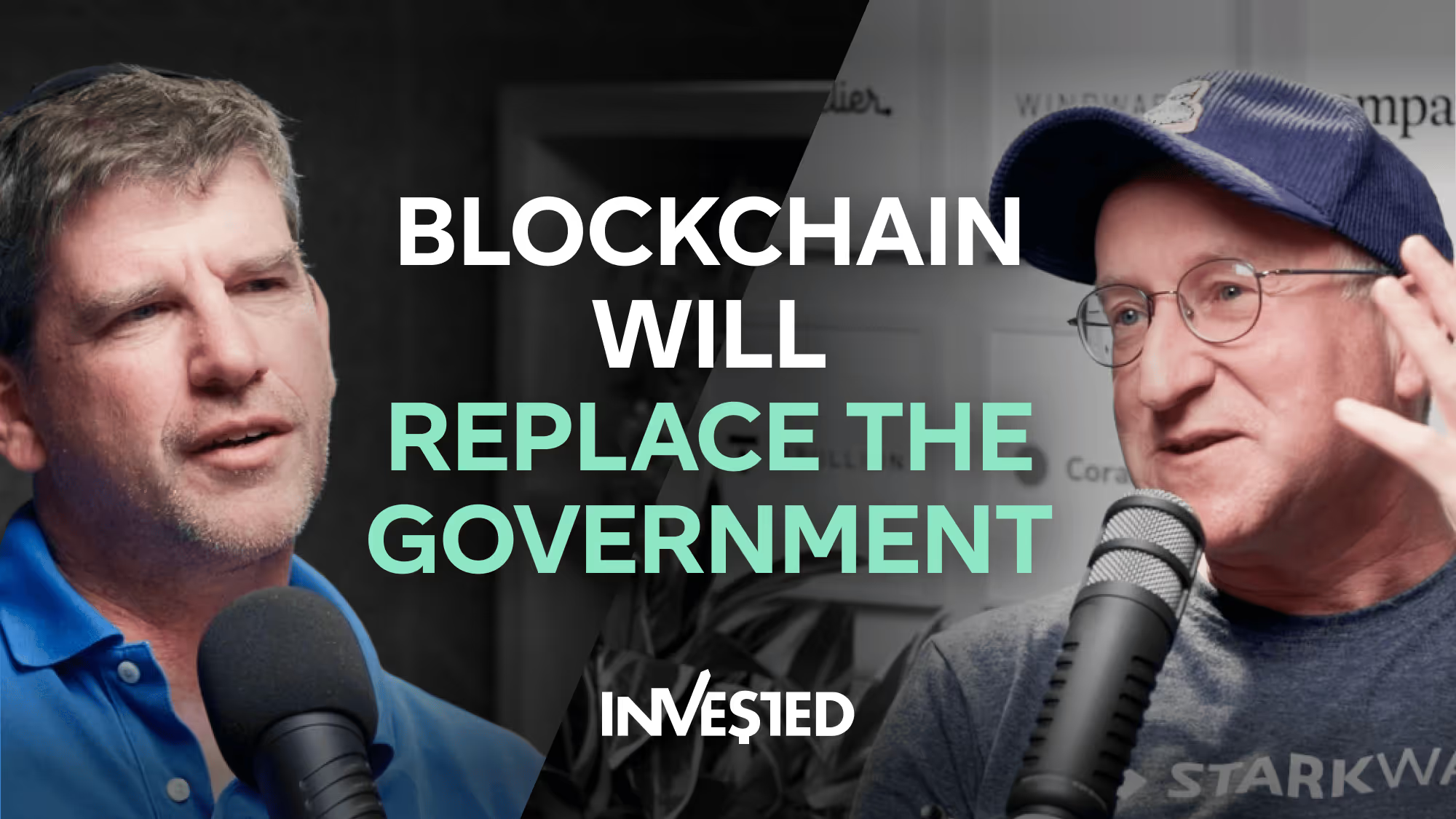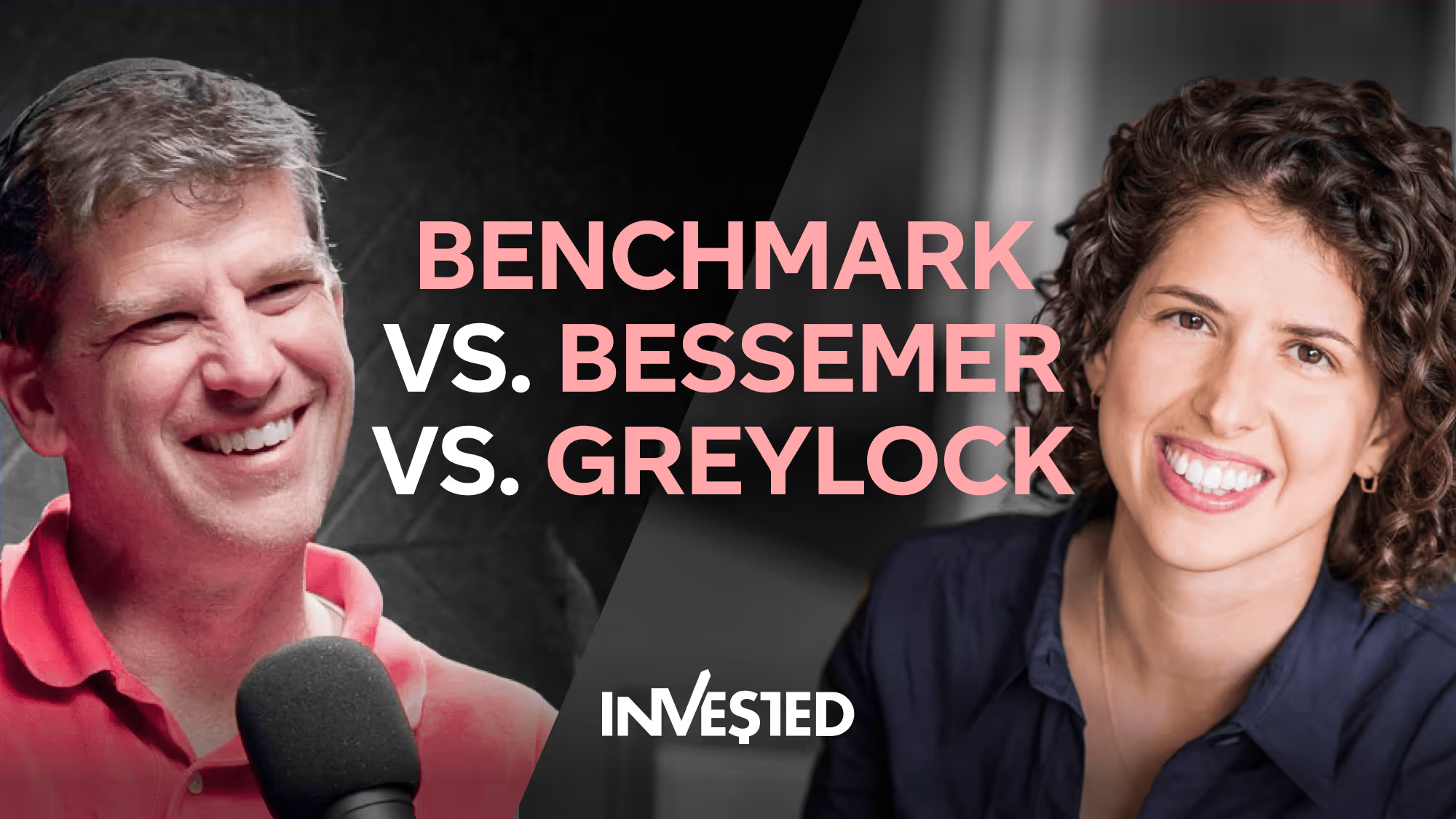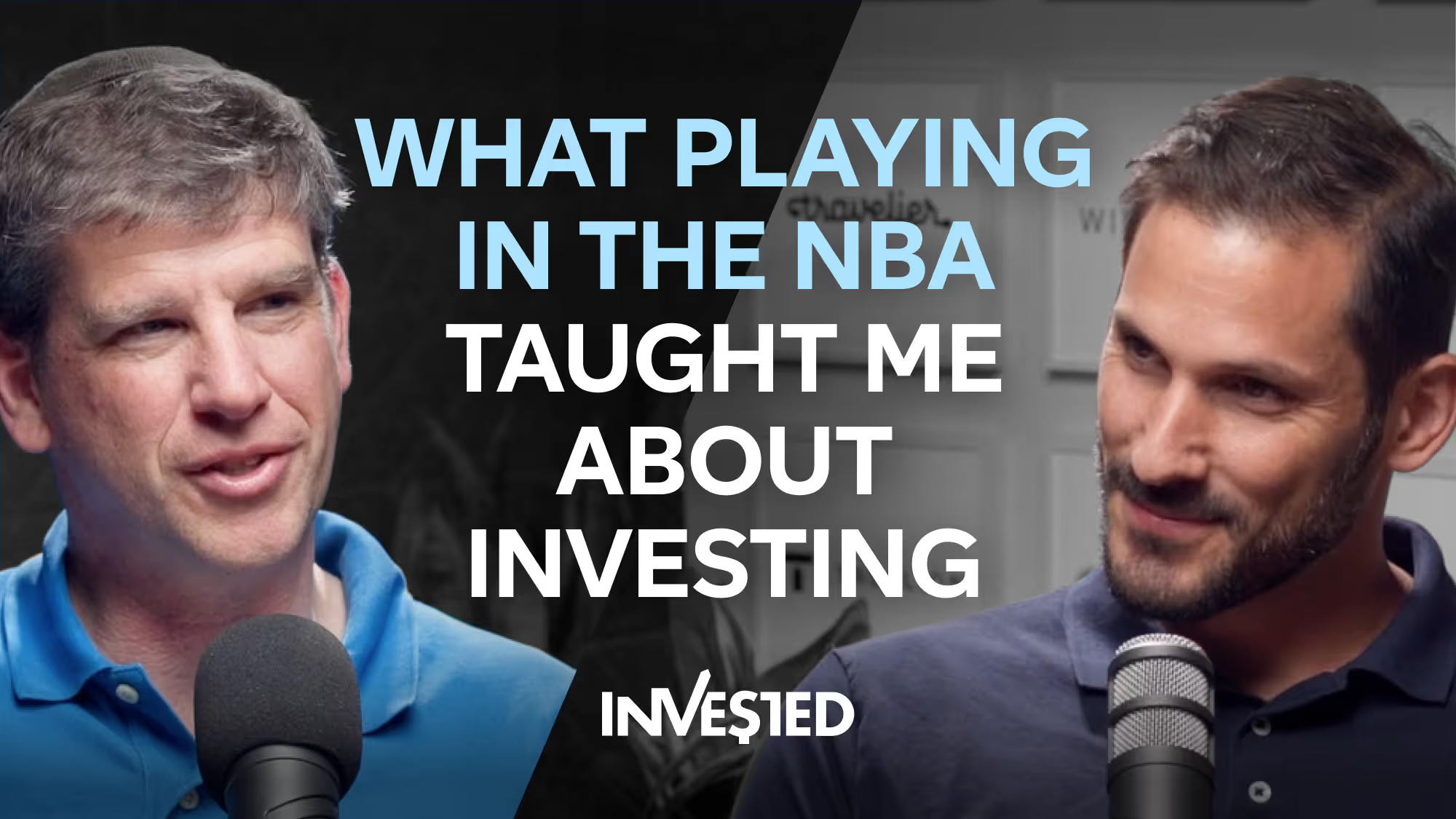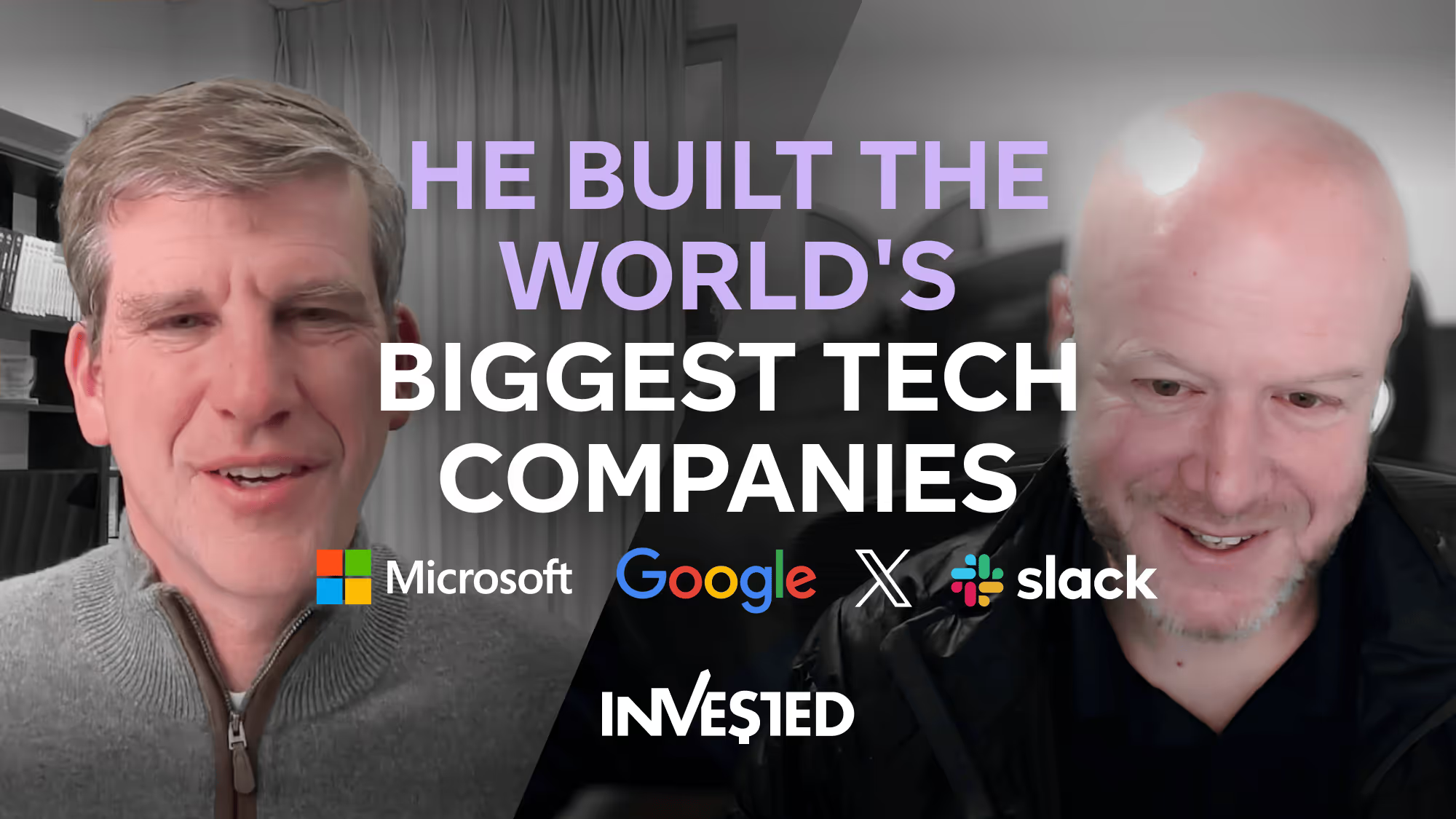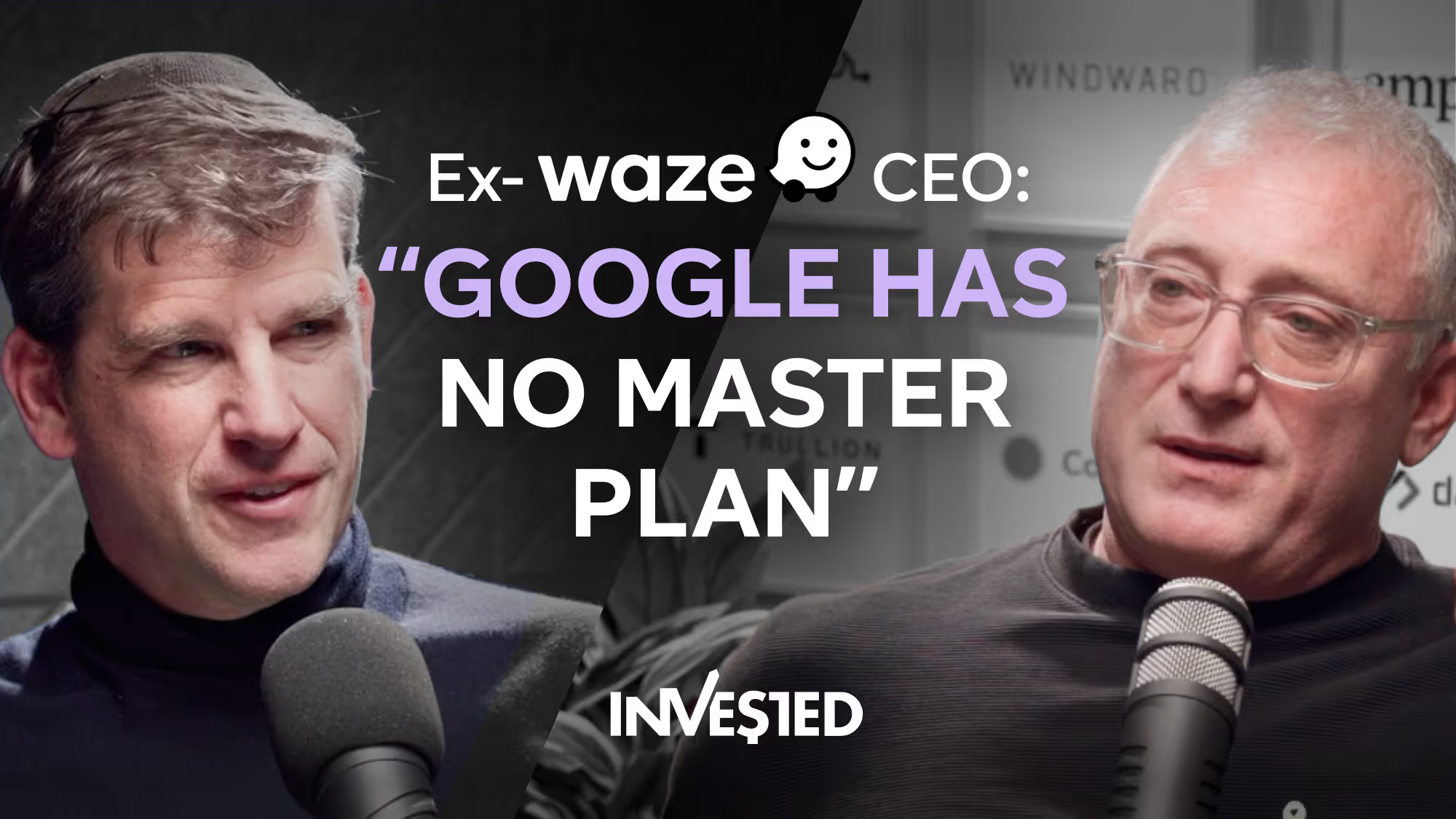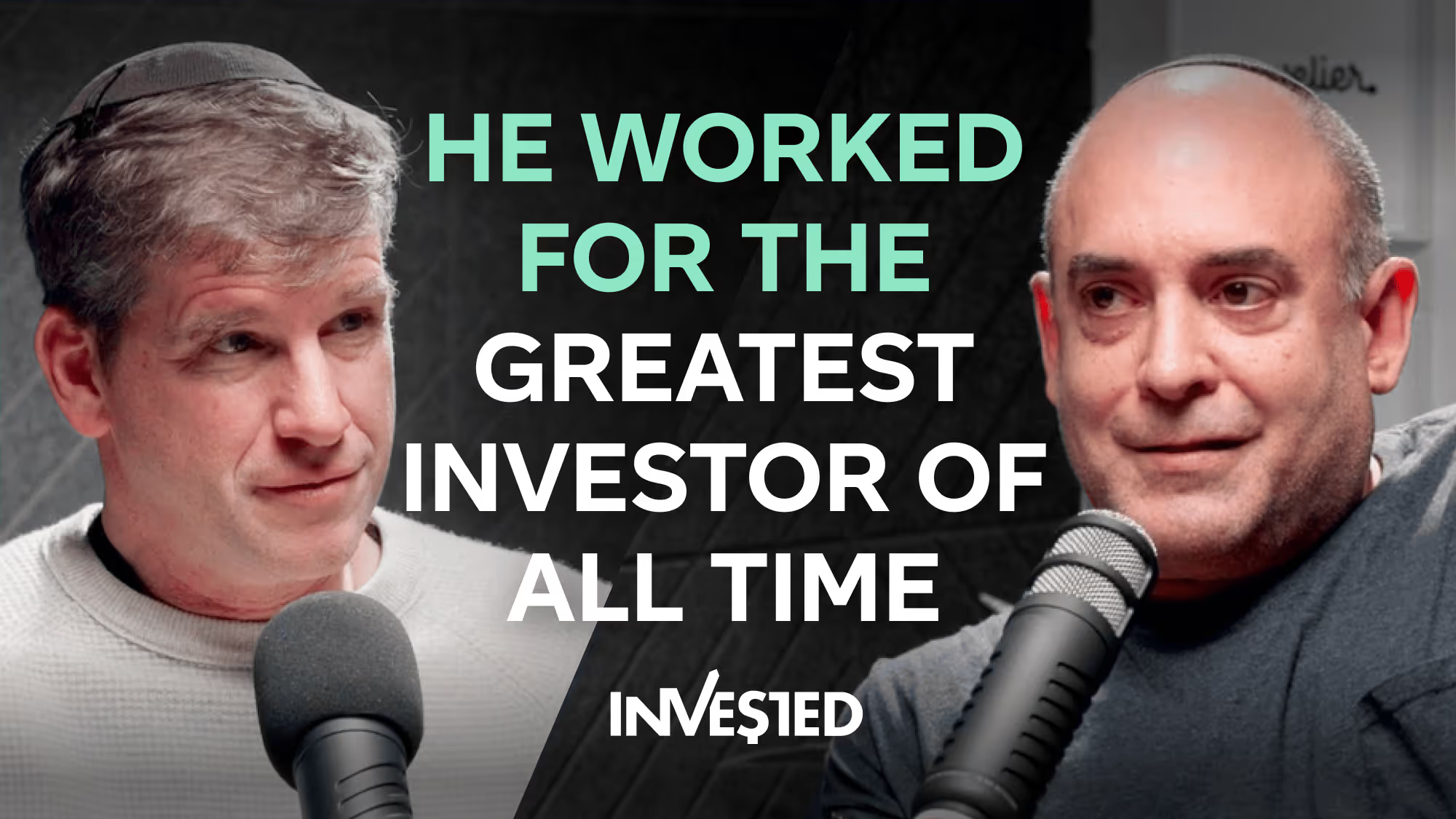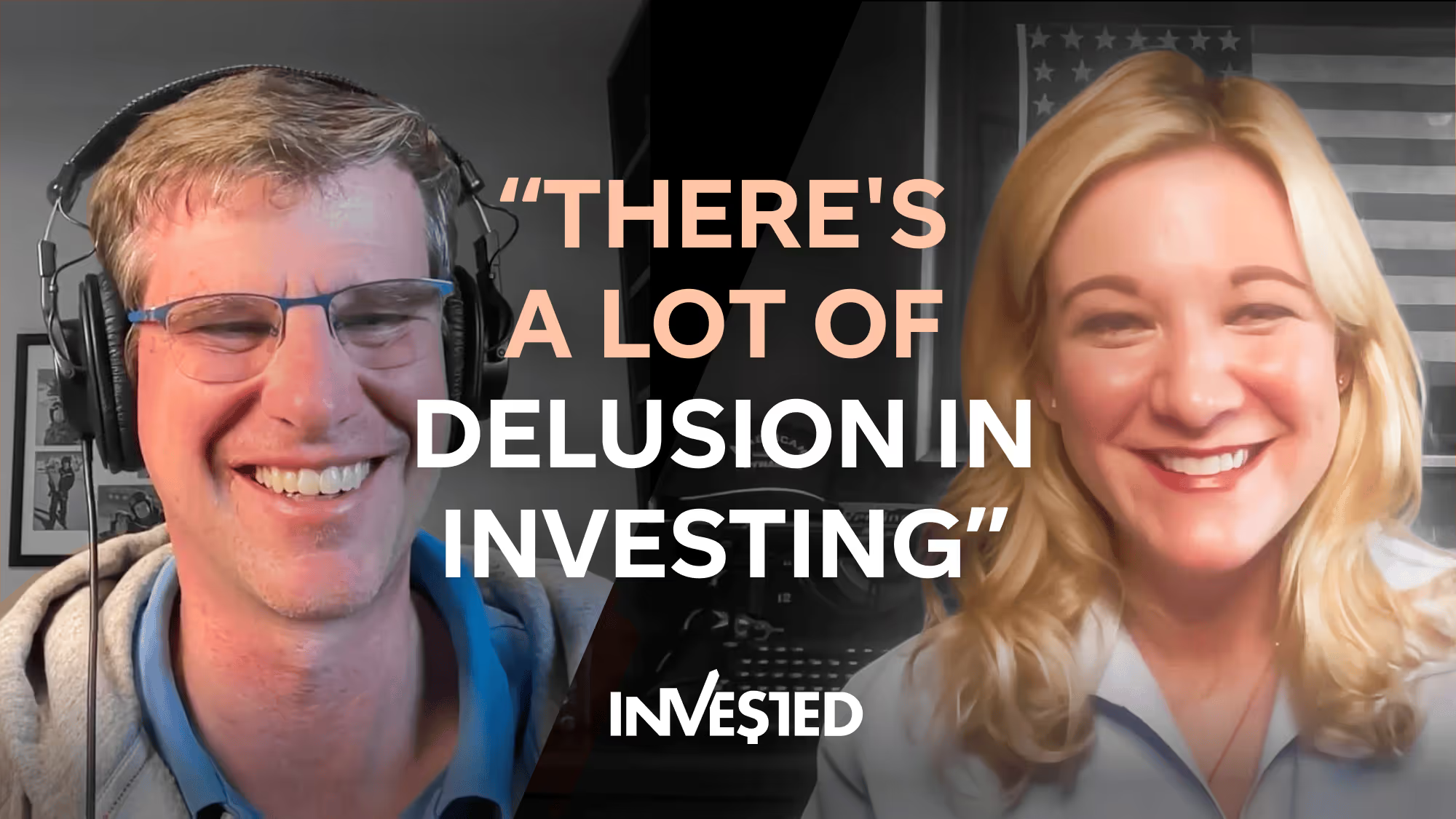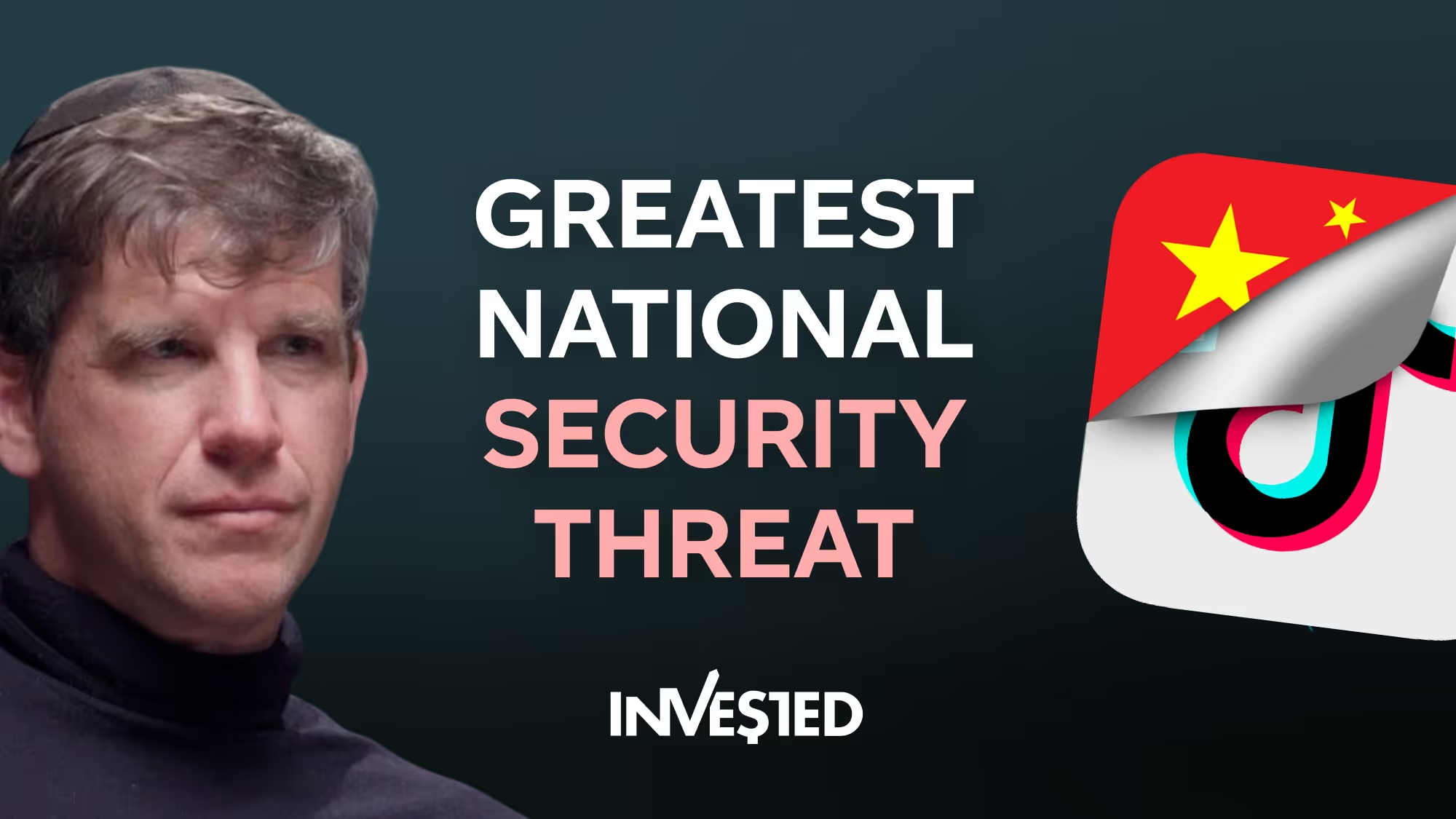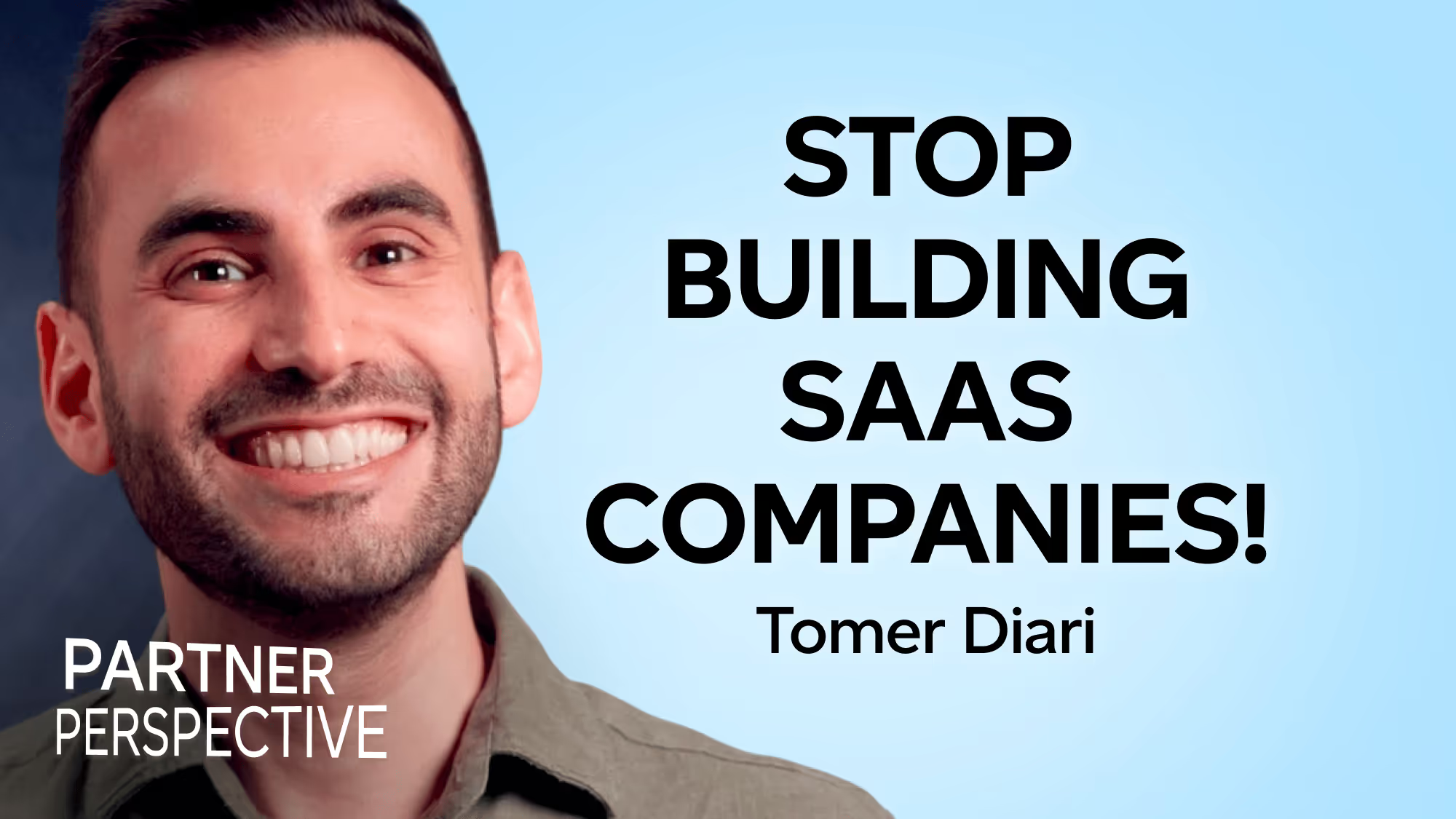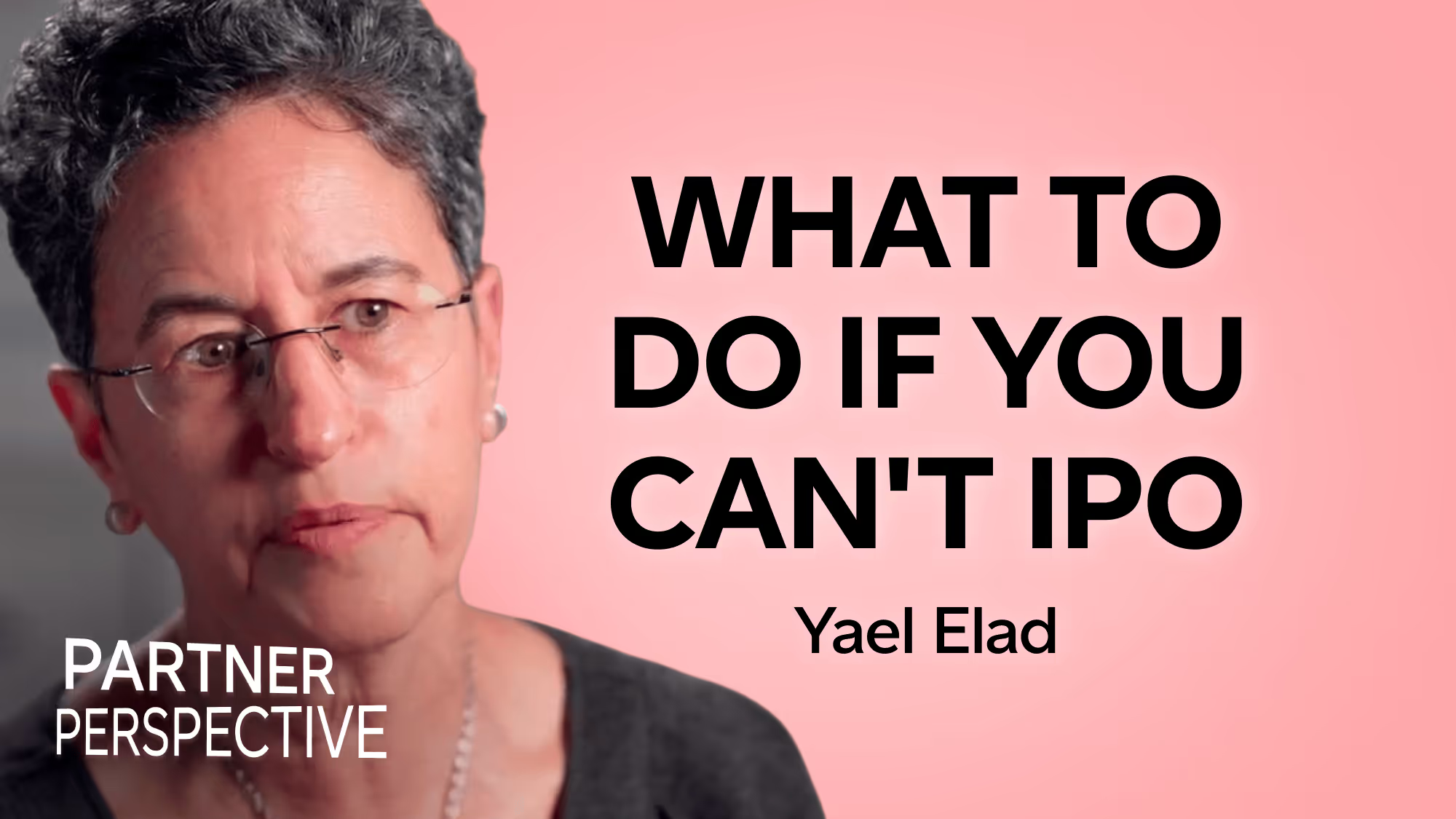After October 7



You can’t go ten minutes without someone talking about AI, but most of the time, it’s hype without substance. Almost Human exists to change that; to dig past the noise and reach the sharp ideas, technical breakthroughs, and human stories that actually shape the future.
Let’s cut through the noise.
After October 7



How can values create value? On this podcast, Michael Eisenberg talks with business leaders and venture capitalists to explore the values and purpose behind their businesses, the impact technology can have on humanity, and the humanity behind digitization.
After October 7
After October 7

After October 7
After October 7
- [00:00:00] Michael Remembering October 7th
- [00:06:52] Ami Daniel His Oct 7 Experience
- [00:17:57] - Michael on Israeli Resilience
- [00:19:16] - Ami Daniel on Kvar Baim
- [00:22:20] - Michael Introducing Izhar Shay
- [00:23:08] - Izhar Shay on his son Yaron
- [00:33:10] - Michael Introduces Izhar’s Initiative
- [00:34:21] - Izhar Shay’s Next October Initiative
- [00:35:26] - Michael on Post Oct. 7th Israeli Investment
- [00:37:25] - Michael Introduces Eyal Waldman
- [00:38:05] - Eyal Waldman on his Daughter Danielle
- [00:41:35] - Eyal on Peace Moving Forward
- [00:47:32] - Michael Introducing Stefan Tompson
- [00:49:08] - Stefan on the Fight for the West
- [00:53:20] - Michael on Moral Clarity
- [00:54:20] - Michael Introducing Marc Rowan
- [00:56:12] - Marc Rowan on Anti-Semitism
- [00:59:45]- Michael on Meritocracy
- [01:00:35] - Michael Introducing Sam Lessin
- [01:02:13] - Sam Lessin on the Problems at Harvard
- [01:05:33] - One Year Later
On this episode of Invested, Michael looks back on the incredible and tragic stories from October 7th within the Israeli tech ecosystem, that were shared on the Invested podcast over the past year.
The guests whose stories are featured on this episode, in order of appearance:
- Ami Daniel - CEO and co-founder of Windward
- Izhar Shay - Venture Partner with Disruptive AI
- Beezer Clarkson - Partner at Sapphire Partners
- Stefan Thompson - Founder of Visegrad 24
- Yoav Shoham - Co-founder and Co-CEO at AI21 Labs
- Eyal Waldman - Chairman of Waldo Holdings and co-founder of Mellanox
- Ben Lang - Angel investor
- Marc Rowan - Co-Founder and CEO of Apollo Global Management, Inc
- Barak Herscowitz - Former employee of TikTok & Political Advisor
- Sam Lessin - General Partner at Slow Ventures
Listen and subscribe to Invested: https://content.aleph.vc/invested
Please rate this episode 5 stars wherever you stream your podcasts!
[00:00:00] Ami Daniel: But I have people right now locked in
[00:00:02] Izhar Shay: with terrorists around them. We faced the most evil atrocious set of activities that a person could think of. This
[00:00:09] Stefan Tompson: is not a fight for just Israel. This is not a fight for the Jewish people.
[00:00:15] Marc Rowan: I think one of the things we should do is make sure there's a cost for being an anti Semite.
[00:00:19] Sam Lessin: And then after 10 7 it became, I was like, Oh my God, I'm wrong, right? Harvard is off the rails.
[00:00:23] Michael Eisenberg: I'll tell you when I came to visit you at the Shiva, it was one of the hardest hugs I've had in a long time. Can you tell us about Danielle, your daughter? She's an amazing person.
It's now been one year since all of our lives changed on October 7th, 2023. A Shabbat and holiday morning that, to paraphrase others before me, It was a day that will live not just in infamy, but in deep pain for the people of Israel, for the state of Israel, for the families of those who lost loved ones. A year later, we might forget that on that day, women were raped, [00:01:00] children were burned alive in ovens, families were destroyed.
There are still 101 hostages held captive by Hamas terrorists in Gaza. We've lost tens of hostages who were murdered by that brutal regime inside of Gaza, held in dungeons, suffering in untellable conditions under the ground of Gaza. And I think back also, over the last 20 years, as the world has poured millions and billions of dollars, tens of billions of dollars into Gaza, as UN agencies operated in Gaza, concrete was delivered to these people, pipes for water, and what were they used for?
For missiles. for building dungeons to hold the hostages and sex slaves. That's what happened in Gaza. That's what Hamas prepared 20 years for. That's what UNRWA supervised. Would you believe that we'd be sitting here on October 7th, 2024, knowing both at the same time that members, [00:02:00] teachers in UNRWA were terrorists and butchers.
And at the same time, that same agency asks for their immunity. Think of the countless of lives that were destroyed on that day. This has been intensely personal. You've heard me say before that I've had numerous sons serving on the front. We lost two cousins. Everybody has friends who have lost children due to the brutality of Hamas, due to the brutality of terror organizations that the world decided to countenance for way too long.
That's what the last year has been like in Israel. One year in, you may have forgotten those original images. If you didn't see the 47 minute film prepared by The IDF and the prime minister's office, a large part of which I did see. You may not still hear the screams of the people. You may not be able to see the head being chopped off by a whole wielding terrorist of Hamas.
The glee with which they shot up homes, babies and tore [00:03:00] families apart one from the other. There have been heroic moments since then. The saving of Noah Argamani was a moment of heroism. But Noah should never have been taken on that motorcycle. She should never have had to spend time in Gaza. That's a trauma she and many others will carry with them.
And I think it's also important to come back to the sexual violence that happened on that day. The rape of women that we thought had been banished from our lives for already hundreds of years as a tool of war. Something that no modern person should have to think about. But it returned. Sheryl Sandberg documented this in her film.
The screams of the women, the screams of silence who were raped multiple times by Hamas barbarians. We cannot forget this. The one year anniversary must remind us all of the horrors that happened on that day. The day that the most depraved people on this planet were jubilant. The day that not only did terror [00:04:00] rear its ugly head, but struck fear in the eyes of many.
Not only a day in which terrorists destroyed families, but a day in which people on college campuses rejoiced. And a day later when the Hezbollah terrorists launched missiles on Israel, this was a coordinated attack at the heart of humanity, at the heart of Western civilization and attack into the hearts of civilized people.
Throughout this year in Israel, we've recorded people affected by and who were effective on October 7th. We've heard a lot of very human stories. Stories of tragedy and stories of resilience. And it's those stories we want to bring to you today. But not before we remember that there's still almost 150, 000 Israelis displaced from their homes by Hamas terrorists in the south and Hezbollah terrorists in the north.
There have been hundreds of soldiers killed. As I mentioned, two of my cousins were killed as well in battle, but these kids are heroes. They [00:05:00] are unique Israeli heroes. As I've written before, this is the defining generation, the generation whose brains were not turned to mishmash by TikTok, the generation that was not confused by Instagram.
They didn't just flick forward. They turned the page on history by turning up and being counted. One year after the horrific October 7th, we'll take stock on the pain. We'll look at some of the really touching heartfelt and heart rending moments that we've experienced in our own podcast here. We will also salute this young generation, this very resilient population of the state of Israel that has showed the way for the West.
Forward that has showed the world that you can stand up for freedom. You can stand up for morality. You can stand up and be counted. You will see how they turned up in spades since October 7th, the people behind that innovation who [00:06:00] lost loved ones and the people who came to save people they didn't even know.
We want to recount some of these inspiring stories and some of the lessons for the entire Western civilization and the civilization of civilized people. I think the other lesson you can take on October 7th, 2024 is the following evil can be defeated. We fight depravity with optimism and we fight those who ravaged us with resilience, innovation, optimism and resilience will win the day.
Israel will come out on top and ultimately with enough moral clarity, the West can win this fight against evil. So please come along with the journey back in time for one year and forward to a much better future. Ami Daniel is the CEO and founder, co founder of WinWord. We want to start by
[00:06:54] Ami Daniel: talking about October 7th.
I live northeast of Tel Aviv. I just sit in the TV. I sit at the [00:07:00] computer. I go out to my study where I'm right now and I say, say, listen, we got to do something. And then I just start calling people, basically. I call you Michael, but it's Shabbat, so it took me a few hours to get ahold of you. I call some other people and my, my brother in law is very active in brothers and sisters in arms.
Which is a new civic movement, which was built in the last 10 months. So I called him up and said, listen, did you see what happened down south? We need, we, we gotta help them. His name is Tamir and he says, listen, let me, let me check back. I'm back to you. He's checking with them. They didn't really know what to do.
He calls me back, says, listen, I can't do anything tomorrow. So I said, I say, okay, so I'll do it alone. No problem. And I started messaging in a lot of WhatsApp groups. Does anybody need help? Does anybody need help? I did this instinctively without any plan. And then people start coming, start coming back to me.
And the first guy actually is, it is Shaka, which you know very well. Venture capitalist is a venture capitalist from cool. [00:08:00] What capital? Yeah, we, we, we together went to meet some people some material Israeli things last 10 months. And he calls me back and says, I mean, my lawyer. It's right now with a car with a gun going down the South trying to rescue his daughter.
And I was like, excuse me, can you please repeat that for me? He says, yes, my lawyer is in the car with a gun trying to rescue his daughter, but can you call him and help? I called this guy. I've never met him. I don't know who the guy is. He said, listen, they all, Hey, what's your name? He says, yeah. Can I help?
He says, yes. My daughter was in the party. It was a big party called Nova, the Nova Peace Festival, Nova Peace Festival. It's about 1, 500 or 1, 300 young people celebrating peace a few kilometers from the Gaza Strip, four or five kilometers. And she says, it says, listen, she got away from that.
They were massacred there and she's hiding right now in, in some open area. I'll give you her number. And then I WhatsApp her and I [00:09:00] said, Yoni, your dad told me to help. How can I help? And she, and she writes me back like in a second, listen, my boyfriend and his friend, they tried to save us and they got shot.
We're surrounded with bodies. We're just outside in this open area and we need help. Can you help me? Here's my location. She sent me a WhatsApp location and my instinct to respond to her was I'm on it. Don't worry. We'll fix it. Why did they say that? I have no idea because I had no background to say that obviously, but I just say on it You know, I'll get you out of there.
I turned to my wife and says listen, what do you think you should do? She says listen, do you remember the guy who were in London a couple years ago who started with us? He's a he's a He's a general in the army. How would you call it? Okay. I was his mentor Michael I think you put him together with him to mentor him And in some internal course, me a few months ago.
So I know him, I know his wife, I know his [00:10:00] son. Right. I called him and said, well, why listen, I have these people there. They're just outside. We need to help them. What can I do? He said, listen, I'm on vacation lately. I can't help, but he used a phone number. Of the operations officer of Delta South. Call him, tell him, I told you, I told them to help you.
Said, okay, but please rest your, I called the diner and said, listen, you don't know me. My name is Ami, but I have people right now locked in with terrorists around them. Give me somebody to work with. And then from that sentence, all the words for the next three days or so, but specifically that Saturday, I made maybe 50 calls, maybe a hundred calls at this guy.
And I got, and this guy gives me now a guide who is around the ladies, the young ladies location to get her out. So the one I had a, well, what's what, what's up with her. And she's telling me it was five or six hours with her and what's right. It's not, it's not a minute. This starts 8 00 AM. It finishes one, 2 PM.
It's And she says, listen, they're outside, they're terrorists outside, they're trying to kill us, they're shooting people, and so [00:11:00] forth. And he got me together with these forces on the ground, and we managed to get her out. And then we did it again, and again, and then in Béry, and then Béry was a big city down south, I think the biggest one, right?
It's about 1, 400 residents, really close to the fence. And, and Barry was really a massacre over there. So suddenly these people started swallowing to me and my brother in law calls me and says, listen, do you know what I'll help, I don't care. And he started sending these messages in brothers and sisters in arms WhatsApp, which is again, hundreds of thousands of people around the country.
And I do the same in the entrepreneurs WhatsApp group in the whatever tech leaders for democracy, WhatsApp group. And people start spreading the word, so people started coming back to him and coming back to me and coming back to some friends coming back to my wife. And then suddenly I'm overflown with hundreds of people right now under fire and they're telling me, listen, here's my location.
Nobody's helping me. Can you please get the army here [00:12:00] all on WhatsApp, all being coordinated with both the people who were under attack and the army on WhatsApp, all of WhatsApp. And I think in Saturday. I focus on Bairi because this is, I think, one of the, the hardest areas and I just, I'm just one, one person, my wife, kids are at home.
Right. So, so, I focus on Bairi and I, and I get to the region of first forces that break into Bairi and, and I end up with a guy with the commander is calling the Dalleluria, who's right now coming from the fence around. So the terrorists were in the epic gate, the barbarians actually, maybe shooting everybody coming in.
So he goes around the fence. And this guy just, you know, he just gave me his number and I said, listen, I, I got your number. Can you go down to South Tiberii? And he says, I'm on my way. Give me 15 minutes. And nobody else is telling him what to do, right? He's like a coordinator in the army. He has 25 or 30 people with him.
We should, we should also say at this point that some
[00:12:59] Michael Eisenberg: [00:13:00] week plus later, you discovered that Luria, this guy actually got in his car from the Northern border of Israel from Betzet. It went south to save, it loaded, put on his uniform, put his gun on and went all the way south to do that and then two and a half or three hours later, which first of all tells you how small a country Israel is.
He's now at the fence in the southwest of Israel in Beirut, talking to you on the phone. And you're kind of directing him to get people, but you only discovered this, that he came from the north like a week plus later.
[00:13:29] Ami Daniel: Yeah, I, I, I didn't know. He just sends me a WhatsApp message. I'm on my way in 15 minutes.
And then when he comes in, I started working with him. Now, it's important to say that these, these cities downtown don't have streets names. Yeah. So opposed to New York City, where you say, you know, I'm on the 6th and 25th or whatever, Yeah. Yeah. Yeah. You can't really, like, if you don't live there, there's no name, right?
This is called Little Towns and Villages with Little Roads. Yeah. It's like Little Roads and the houses, people know the houses according to the family name [00:14:00] and the number. But if you Google, go to Google maps, it doesn't appear there. So, so I think it's a big issue because I end up working with three or four different ground forces of Béry, every one of them in a different area of Béry for like 14 or 15 hours, and they don't know the place and they have no maps.
And really they don't know really that each other are working there and, and I'm, I'm, I'm getting these locations from people. And I think at that time, I think it's what's crazy is there are terrorists in the houses. It's not that this is done and the army is like, you know, there's three to five terrorists in every house.
Oftentimes, and I've spoken to many, many families and I help them, they're in their shelter lock. The, the dad is pushing the door handle so people don't open it. The terrorists are setting the house on fire because they can't open it because the dad is like this for the hours and the door is becoming hot and a terrorist either putting [00:15:00] it on fire or not putting it on fire and waiting outside the door, ambushing the, the forces coming in.
So at that time, what I end up telling the forces is not just. There are people in this house because they don't know where they are, but where they are because many have been kidnapped and also where the terrorists are to the extent that right now, let's say they send me WhatsApp pictures from the ground and send me live location and I send them back maps with drawings that I do on my iPhone of where the terrorists are and, and I try to help them understand where, in which windows are the terrorists and where did they miss them.
And a few felonies where we had one felony, the mall felony where. The dad has ALS and he just, he's, he's, he's, he's in a wheelchair. So we had to tell the two kids to jump through the bathroom window while the forces go in and blow up the door. And we knew there are two terrorists hiding for them, one in the stairs and one in the second floor.
And it's very surreal because I'm just like, I'm just a [00:16:00] CEO of a tech company. Right. I don't usually, I don't usually work with ground forces to tell them where the terrorists are. So that was saturday and I think saturday finished I think 2 30 a. m There are dozens of challenges like that I I thought it was over saturday evening But apparently it wasn't so the siren went off in jerusalem two hours after it went off in tel aviv The first
[00:16:18] Michael Eisenberg: missiles were fired by hamas to jerusalem two hours later.
So only at like 8 20 8 30 in the morning Did we know something was up and I have a son who's in the army and his phone started ringing get ready to come and my second, another son who's in reserve duty turned on his phone and because we don't keep our phones on on Shabbat and and they said you come to the army and after another 10 minutes I said I better turn my phone something's going on.
I turn it on. There's a message from Ami It says call me as soon as you can. And hesitated. I'm saying, it's Shabbat, I never talk on the phone, I never turn on my phone. Why is Ami looking for me? You know, he's one of my CEOs. What's going on? And then I said, now he knows that I wouldn't do this, he wouldn't do it, so I pick up the phone and call [00:17:00] you.
I said, what's up? And he said, what took you so long? I don't, I wouldn't call you if it was Shabbat. I know you keep Shabbat, there's an emergency. We gotta go find people down south that can rescue people, and we start connecting, and I'll never forgive myself for that hesitation. And so, I want to thank you for having the right instincts, and I've learned from it.
That ten or fifteen minute hesitation until I actually called you while staring at my phone, like, what the hell is going on? I won't forgive myself for it. And so thank you for being here. We're gonna get
[00:17:26] Ami Daniel: out. We're gonna get out. You know, ten, fifteen minutes is not that bad.
[00:17:30] Michael Eisenberg: What you just heard from Ami is the story of Israeli instincts and Israeli resilience in the 21st century is democracies are crumbling and leadership is hard to find.
The societies that are going to be successful are those that show civilian resilience, where civilians actually take control and take responsibility. Ami is a shining example of that. It was not only his instincts, but his activity, his persistence, his insistence to go the distance over [00:18:00] 48 hours to save people.
that saved tens of people's lives. That's what I want you to take away. We have an incredibly resilient, innovative society that knows how to take responsibility, not just in the face of tragedy, but also when opportunity knocks and people need to be called on to stand up. Ami didn't stop there. It wasn't just the first 24 or 48 hours.
He and a series of of Israeli entrepreneurs, resilient Israeli entrepreneurs, people who take responsibility, decided to develop something called acquired by him, which means we're on our way. We'll get there. This was a civilian build of technology that was then integrated into the military, into the police to enable them to be better first responders to trouble.
That might arise going forward. The story is incredible. Please listen with me. First
[00:18:49] Ami Daniel: of all, I thought it said they ended suddenly warning. I wake up, I see it's not ending. And you know, there's two more people. My wife tells me, what do? I said, I helped him. So I call up [00:19:00] my, my, my PPS I could be part of a meal at my CFO offer and my people just show up.
They just show up like 15 minutes afterwards. And then I. Right. Did a entrepreneur group. I said, kids, people come help. And suddenly by 10 AM, there are 50 or 20 people at our house. And I end up like people reach out to me and then I give them, you talk, please part of the army, you talk that. And then we understand my wife tells me, I'll be, this is too much that you, you, we can't keep on doing this on WhatsApp.
Let's build a product. I said, well, you know, good idea. Sorry. I was like, hence I was hence doubt. I called Ed and your partner and out of it. And I said, and can you come and help 50 minutes afterwards is in the doorstep. And, and we start working with that and, and, and, and figure out how can we make this a product?
Well, I think you mentioned low degrees of separation. I actually think the layer of founders, CEOs, COOs in Israel of growth companies is extremely tight. Yeah. I can mention Mir Zohar from Wix, who is amazing. [00:20:00] Obviously you, you, you invested in the early days of Wix. I think you introduced me to Mir and Mir Kaufman who founded CO5R is amazing.
And I had a guest from Papaya and Guy Bloch from Brain that I can mention. And Geeky Levin is a big investor in this country. But the investors and top focus teams are very tight. So I reached out to them and I said, listen, guys, we need help. Can you help? And suddenly I think we have a team of by Monday morning.
15 or 20 people productizing an idea that says, if Israel is attacked and the fight is on our ground, not on the enemy's ground, if people message you on WhatsApp, how do you collapse the time at scale to help them and do that in hundreds or thousands of cases? So we think of a concept called Kvalbaim, which in Hebrew is, we'll be right there.
It's a, by the way, intentionally in Hebrew. So everybody feels comfortable in this, in this country. It's the Hebrews are, you know, obviously have a lot of talent. And we start working on it. [00:21:00] And so by Monday evening, there are about 20 people working on this product. By Tuesday morning, it's on the website of the biggest news website called Binetz.
co. il. In Israel for people to reach out and get help. And I think by now it is, it is a fully fledged product. The people can, can reach out and get help, whether it's for evacuation or whether it's for more things under fire. And it's fully integrated with Muddy. com and, and the other products API products, but it's a fully integrated product for rescue people under
[00:21:36] Matan Bar: fire.
I am a proud Israeli. And so as a proud Israeli, I have like. 50 percent more motivation before October 7th, of course after October 7th, because I want Israel to be successful.
[00:21:48] Michael Eisenberg: When I talked about Ami Daniel I talked about the resilience of Israeli society, of Israeli entrepreneurs, the take charge attitude, this idea that I'm going to make something good, [00:22:00] meaningful out of this.
I'm not certain there's a better example of this than my dear friend, Izhar Shai. I backed Izhar Shai's first startup 20 something years ago. I was fortunate enough to sit on his board. His son Yaron was killed on October 7th by Hamas terrorists. He was killed because he stood up. He was killed because he defended the kibbutz that he was stationed at.
He was killed because he was a man of valor. He was killed because he is a uniquely Israeli and global hero. Right now, please listen with me as Yisrael talks about his son Yaron.
[00:22:35] Izhar Shay: I'm a venture capitalist. I was the Minister of Science and Technology for the Israeli government. And in the context of our discussion today, I was for 21 years the very proud father of Yaron Ori Shai, our youngest son.
Yaron has three siblings. My daughter, who is a 33 years old, Shir. My son, Yor, at 30 years old. And 26. Aaron was [00:23:00] our youngest. He was a soldier within a special unit of the Nahal Brigade. And they were stationed at the border for a few weeks before October 7th. Their mission at the border between the Gaza Strip and Israel was actually to keep the peace.
Between the two sides of the fence to let people go about their agricultural, agricultural business and other businesses in both sides of the fence. On October 7th, they were there as from the first launch of rockets and missiles against Israel. Their unit responded. As they should have because this is what their mission when peace turns into war when the you know the the ceasefire is broken by the other side What the IDF is supposed to do is to to respond and to protect the civilians.
This is what y'all's Unit did on the southern side of the Gaza Strip border. They were [00:24:00] stationed in an area called Kerem Shalom ironically enough Kerem Shalom is the peace vineyards this is the name of the kibbutz and also the name of the army base, which is adjacent to that kibbutz This is what Yoram's unit was assigned to in terms of their responsibility, and they resorted immediately.
They were attacked in that area by hundreds of highly trained, very well equipped Hamas terrorists whose mission was to move into the kibbutz and torture and murder innocent civilians, babies, young women, families, whomever they would be able to, to get hold of, as they did. In many other places in that region.
But in this case, the unit stood against them and was able to maintain both lives in the army base and in the kibbutz. The end result is significant tolls for the unit itself. The commander of the unit was killed in action. His his deputy commander was also killed a number of other officers and soldiers, including our [00:25:00] son Yaron when they were facing basically a a higher number of of terrorists, but they maintained the line, not nobody was was affected on the side of the civilians in the kibbutz and none of.
The military women who were in charge of the radars and the various electronic equipment, the devices that are in the base, none of them was hurt, which is quite an accomplishment as opposed to the shot results in other areas.
[00:25:30] Michael Eisenberg: The soldiers in, in Yaron's brigade and the Naha brigade there were able to defend against these rapists and terrorists coming in.
In other areas where they broke through, they, they raped many women, including women soldiers, some of which have been taken into captivity. There's now 240 kidnapped Israelis, Americans, and ties who have been taken in to the Gaza Strip by, by the Hamas jihadi terrorists. And, and the fact that your son and his brigade was able to stop the [00:26:00] infiltration there despite the, the horrific loss of life in your son's brigade.
Has saved countless more women, children and others from from a fate that befell others. And that bravery is, is remarkable and it's just important to point out both the bravery and the tragedy that was, that was averted because, yeah,
[00:26:17] Izhar Shay: thank you for noting the doubt that the mission of those savages had was to, to rape and behead.
And kill young babies and torture families in front of their, you know, relatives just to make sure that everybody suffers and then get rid of them by killing them in all kinds of savage, savage ways. So, yeah, this was a mission. The mission was not accomplished in that region. The toll was significant in terms of the military toll, but this is what the IDF is supposed to do.
The IDF stands for Israeli Defense Forces. And this is exactly what they did. They defended the civilians, they defended the state of Israel, and on that side of the border, the border was maintained Yaron himself was part of a team of three that was actually the commanding [00:27:00] post of the unit. He was just sent to to the commander of the unit at that time and another soldier.
And the three of them stood in heroic ways against dozens and dozens of terrorists. Again, very well equipped and highly trained. They responded, they were able to maintain the line. Actually, there's an interesting communications recording of the Hamas terrorists were the commanding you know, the commander of the area of Hamas kind of shouts at his at his people, why do they not enter the kibbutz?
And they tell him that there is a jeep. That they cannot get rid of their there is some some kind of a response that they are unable to To overcome and this is exactly the the jeep that or the the unit that you're almost part of eventually After fighting hard against dozens and dozens of terrorists.
The three people were wounded One of them was severely wounded. This is the driver The other one was severely [00:28:00] wounded, who is Yaron, and the the third one was wounded, but still was able to, to maintain consciousness, and this is the head commander of the unit. And by some very heroic efforts of another officer, they were able to retrieve them back to, to an area where they could be treated first, and then lifted by a helicopter back to a hospital.
And this is where Yaron was pronounced dead. And the other soldier, by the way, He's recovering now, doing relatively well, and we are very happy for him. He will survive, and he will be able to continue on with his life.
[00:28:34] Michael Eisenberg: I'd like you to just take a couple minutes and tell us about, about Yaron.
[00:28:38] Izhar Shay: So, yeah, Yaron was our youngest. He was 21 years at his father in law, Kerem Shalom. Interesting to note, Yaron was an American citizen. He was born in the USA, was brought up as a young Jewish American kid until the age of five, which is when we decided to To relocate back to Israel. He also attended the American.
Oh, New Jersey, right? New [00:29:00] Jersey. Yes. He was born in Ridgewood, New Jersey. He grew up in Solon. And then when we relocated back to Israel, he actually attended the American high school program here in Israel. So, his education is half Israeli and half American by training. And he was I should say a proud Israeli American citizen.
He obviously fought for the Israeli army, the IDF, but I believe that we should all understand that he also fought for the American values of freedom on the, the, the American you know, basic norms of of culture of the Western world. And he died defending those basic values which are, I think shared by both Americas and Israelis, which is important to note as a kid and as a young adult.
Well, first of all, you know, not the most important feature, but still, he was very handsome. He had his bright blue eyes and very, he was very good looking. We always used to say that he's the better version of all of us. He looked [00:30:00] much better than I do. He was way more sophisticated than his siblings, they told him.
So, you know, this is not something that we are now saying after he's passing away. This is something that he was told why he was still He with us he was crowned like the the king of the house for all kinds of reasons He was very modest. So it never took this you know in the wrong way he was shy and modest but still a very charismatic leader he was a a leader in the Zofim, in the Scouts, where he spent a good number of years.
Then he volunteered in a gap year between high school and joining the, the IDF. He volunteered with the kids from economically challenged families in the south of Tel Aviv. Did this for a year. And then he volunteered to the best he could in the Israeli army. He was very proud to have joined a special unit within the Nakhat Brigade.
This is a unit where you have to work very hard for about 13 months until you earn the title of a combat soldier in that unit. So [00:31:00] you work, you sweat, you, you freeze in the cold, in the rain, you. You walk many, many long nights and you do all kinds of crazy stuff until you are qualified to fight for the defense of the Israeli citizens to join this special unit.
He was actually eventually qualified in February of this year, 2023. He was awarded an excellence award for having been an outstanding soldier. Sadly enough, the officer who gave him that title in a special ceremony also died in the same on the same day fighting against terrorists. But you know, we still have that the title in our house.
Both their names indicate some symbolic, in some symbolic way, the connection between them.
[00:31:45] Michael Eisenberg: It's harsh how you lost a son your own. decided that if the path of terrorists is nihilism and terrorism, our path will be light and building. That's what we do. We build when they destroy. And [00:32:00] so his answer to the murder of his son by these terrorists was an initiative called next October.
Next October is incredible. Is her determined that there would be One startup created in memory of each of the people killed on that day. We would build something that would employ people that would inspire life, inspire innovation as a tikuna fix for what happened on October 7th. But this incredible initiative already has 500 partners, including Amazon, Google, Meta, many banks, venture capitalists.
There are already 300 startups and 200 mentors. That have joined his heart is next October initiative. I think you'll agree with me as his heart describes the initiative that this is among the most perfect answers to terrorists and the list. We will build and we will not only rise again, but build it back.
A whole lot bigger and better than before.
[00:32:56] Izhar Shay: This is now past the, the face of being just [00:33:00] a vision. We have put together a steering committee. We have what we think is a good name. The name of this project, so to speak, is next October. And next October kind of indicates that we are looking forward and we're looking forward to a better future.
And next October, we definitely look much better than this past October. But it also. Record the timeline of the next 12 months and what we want to accomplish is we want to make sure that our response to this sheer evil You can't call this. Otherwise we faced The most evil atrocious set of activities that a person could think of Our response to that is by creating, by innovating, by bringing good to the world as a response to everything that those savages wanted to bring upon us.
[00:33:50] Michael Eisenberg: What about your perspective has changed since October 7th?
[00:33:52] Ben Lang: I mean, I think I feel more conviction about living in Israel. I think it's, you know, more, more important than ever.
[00:33:58] Michael Eisenberg: What has been [00:34:00] inspiring, but to be candid, not surprising, has been the reaction of global investors to October 7th. I already wrote, I believe it was in November, that I thought that the resilience that Israelis showed and the innovation that would turn up in this war would lead to a wave of investment.
We at Aleph invested a lot since October 7th. It started on November 7th on the Gaza border when we signed an investment in Dream together with Shalev Julio. Shalev was in reserve duty. You can see in the picture in the Wall Street Journal that covered the investment, the M16 slugging across his shoulder.
As we stood there. With one of the people saved on October 7th from one of the kibbutzim. She was there with us and we signed this large investment in the future of Israeli artificial intelligence in the future of our economy. We've made many investments since October 7th at Aleph. This is our most active period in a bunch of years, but we're not alone.
Since October 7th, Greylock has opened an office in Israel. Sequoia has opened an office in Israel. [00:35:00] Axel Partners has opened an office in Israel. Global investors are all over the place. Missiles from the north. Missiles from Gaza. Terrorists cannot deter global investors because what they've seen since October 7th is a society that loves life and loves innovation that has taken this lemons and made lemonade out of them that has found ways to develop new technologies in the heat of battle.
In fact, we now have truly battle hardened CEOs. We now have incredible technology tested under battle conditions that is ready to take on the civilian market. Investor attitudes have not changed since October 7th. You want the numbers? 7. 8 billion dollars in private funding in 577 rounds of funding since October 7th.
How has October 7th made you think any differently about your own investments in Israel? It
[00:35:52] Beezer Clarkson: hasn't changed our investment in One Iota and I would also say on our platform is a large growth fund. For[00:36:00]
[00:36:01] Michael Eisenberg: I have known Eyal Waldman for many years, since he was an engineer at Galileo in the 90s. Eyal lost his daughter Danielle and her boyfriend on October 7th. They were at the Nova party, just dancing. Eyal was a tireless seeker of peace and coexistence. He employed many people in Gaza prior to October 7th.
I interviewed Eyal for a podcast. Before October 7th, you can go back and look at that episode. The clip you're about to see is when I interviewed him after October 7th, after his daughter was murdered by terrorists.
[00:36:38] Eyal Waldman: For those who have been under a rock for the last six months Eyal lost his dear daughter, Danielle,
[00:36:44] Michael Eisenberg: on on October 7th.
Can you tell us about October 7th for you? You weren't in the country to start, right?
[00:36:50] Eyal Waldman: Yeah. Yeah, I was in Indonesia. I was on vacation. It was a holiday. And you heard? I heard that she's not responding, that she's missing. [00:37:00] So I took the plane back. It took me about 20 something hours to get back. They enabled us to land.
Not with the plane that came. I had to bring another plane. And they didn't land foreign planes to come and land here. I got here and three hours later I went down south, I found the car, it's full of bullets, blood the body's already been taken. When we were going there, there's still engagements with terrorists Monday morning.
We were very close, we were part of one of them. So yeah, it wasn't, it wasn't a good day. And, you reached out to her, you heard, you knew she was at the party there? I didn't know, her mom knew. Her mom knew she was at the party. Yeah. And they called and told you she's missing. Yeah. And the guy in Sharon told me that she's not answering her phone.
And you landed and you went down, armed I assume, I hope, and her body had been taken already? Yes. But was subsequently reclaimed, or no? Taken by Zaka. By Zaka. by Zaka. And I'll tell you when I came to visit you at the Shiva, it [00:38:00] was
[00:38:00] Michael Eisenberg: one of the hardest hugs I've had. In a long time and, you know, in my life, you're there.
Can you tell us about Danielle, your daughter? She's an amazing person. What was her, what was her fiancé's
[00:38:12] Eyal Waldman: name again? Noam. Noam. And, No, he, he wasn't her fiancé. He gave her, like, a promise ring. A promise ring. Yeah. How you want Danielle to be remembered?
And she was, she was like she's an amazing person.
You want to give some more details about her? I, I've read just about everything I think you've written on Facebook and You know, she loved to dance, she loved people, she loved dogs, she loved horses. She did wake surf, she did snowboard, scuba dive, everything. She was like very much peoples. You know, yesterday I was talking in front of Americans and one American woman, girl, came to me and said, You know, I went to the gym with Danielle and I only speak [00:39:00] English.
And always when Danielle was there, she made sure that everybody around me speaks English to me. And also our boyfriend, Noam, she said she, she took such good care. She was so sensitive to me, trying to help even in the gym. She didn't even know her, but she helped. So that's Danielle. Always there for people.
How old is she? Twenty four. Twenty four. Twenty four. As we say, he's a Khram Baruch, and there shall only be happiness and Simchot going forward. I lost a cousin on October 7th, and thereafter you lost your daughter October 7th. There's such a trauma in this country right now. There's real trauma around everybody.
It's such a small country. Everybody knows somebody or is related to somebody who, who was murdered or raped or or wounded because we've had a lot of, we don't even talk about them really. We have a lot of wounded soldiers. Both
[00:39:47] Michael Eisenberg: visible and invisible ones. 100%. You know, I actually want to ask an important question.
You mentioned earlier that Jensen pushed you to hire more Palestinians. You always inspired me because I think you were a man of peace and a man of incredible optimism. [00:40:00] You hired so many Palestinians in
[00:40:01] Eyal Waldman: both the West Bank and in Gaza. Am I correct? Yeah. We had about 25, 30 employees in Gaza. 25, 30 employees in Gaza.
And about 175 in the West Bank. And do you
[00:40:12] Michael Eisenberg: think any differently about that today? Has anything changed in your outlook?
[00:40:16] Eyal Waldman: For, I, I divided two things. First the short term and long term. So for the long term, the answer is probably not. And when we do, we can talk about that. For the short term, I think what we need to do now.
is eliminate Hamas and Islamic Jihad. And this is not compromised about this. I think there's two units been built to take care of that. It may take us a few years, but we'll do this. Anyone that was associated with Hamas, anyone that passed the fence and participated in what was going on in October 7 will be eliminated.
And that's number one. Number two, I think in Gaza, we need to bring an international coalition led by the Arab League, led by Egypt and the U. S. and Europe be involved, and they should come and have two mandates [00:41:00] on Gaza Strip. One, there's no artillery and rockets. In Gaza, anything that exists goes and being buried in Sinai.
And second is education. Maybe they should bring the Emiratis education into Gaza. De radicalization. De radicalization, to un radicalize the education. You know, yeah, I think they should have, you know, Western education. That talks about music, about science, about, you know, paintings and love and stuff like this instead of hate and destruction.
And I hope that within time, when they change their leadership in the Palestinian leadership and we change the leadership here in Israel we'll be able to create peaceful agreement, a two state solution that will yield the right synergy between the two people, the Palestinian and Israel.
I think, until now, the Palestinians did not want to have peace. I think both the economic and the political leadership enjoyed a lot the current situation by getting a lot of money from corruption, and that is why they kept it this [00:42:00] way. We always came with suggestions of what the peace agreement should look like, and I've done multiple things with the I employed Palestinians.
I donated 360, 000 for a Palestinian hospital in Gaza. I've done a peace initiative that took about about 12 months. But then Abu Mazen stopped it. I think we now need to make them want to have peace. How do you make someone want to have peace? Have them suffer. So we need to have them want to have peace.
They should understand if they don't want to have peace, it's going to be miserable for them. Peace comes from defeat at the end of the day, right? No, no, no. That's what happened in Egypt. No, no. No, no. By the way, they think they won. Which, so, so, I think also Hamas now think they won. So don't misunderstand, we want them to, they've done a lot of things, they've achieved a lot in October 7th.
Unquestionably. So, we should not step on their pride. You do agreements with respect, you do agreements [00:43:00] with trust, and you do agreements are win win or lose lose, whatever you want to call that. But in a similar situation, you know, one of my board members taught me that, If both sides come out of the agreement and both of them think they left something on the table, it's a good thing.
But, once we achieve this, and we replace the legitimate both sides, we should strive and make them strive for peace. Once they understand it's better for them to have peace with us, and we also do this, I think it's the right ground to have the right negotiations. To build a very significant coexistence of the Palestinian people, the Palestinian state with the Israeli state.
I find it striking how optimistic you are about it given your personal loss and how, I think there's only one way to converge. I don't think Any people can rule or be responsible on other people. It's never worked. And this is not something we should strive for. [00:44:00] So we should do what's best for the Israeli people.
And what's best for the Israeli people is to have a two state solution. I don't think there's any other solution that is you know, will hold water for a long time. Has anything deeply changed in your outlook since October 7th? The time frame. You know, it's interesting. It could be that we're closer to peace now than we were before.
If you look at what happened in 73 there was a big crisis and the number one enemy for Israel was Egypt. Egypt was our number one enemy. And my father fought. He was the second in command of our brigade of tanks. I was second in command of our brigade of infantry. But you were, you were in Golani, right?
Yeah. Yeah. But that's reserve duty. I'm not, not into my Golani. I'm in reserve duty. So in 73, Egypt was our number one enemy. And in 77, no one believed it would happen. But one guy, one guy, the Egyptians did not support him. No one from Egypt. The Israelis did [00:45:00] not trust him. And Sadat came and says, I want to talk to the Knesset, to the Israeli parliament and begging that did not trust.
So that said that you're invited to come and talk. And this one guy said that has made peace between Egypt and Israel. And I think it's amazing that from crisis in 73, our number one enemy. One
[00:45:22] Michael Eisenberg: of the things about this war is I have met incredible people from all over the world who speak with moral clarity, who understand this moment that we are in in history.
I met Stefan Thompson in Shukmachane Yehuda, the market in Jerusalem, a couple of months after October 7th. The person I met was a fierce media warrior for moral clarity. and for the future of the West. He understood we're in a civilizational battle right now between the forces of evil, of nihilism, of terrorism and Western values of science, of innovation, of morality, of life loving religion.
[00:46:00] Stefan has been a light, a light in so many of our lives. He dedicated his Visegrad 24 media channel to voices of hope, of resilience, and of moral clarity. He exposed many of the lies. Being told on college campuses, he exposed the venomous professors preaching for the destruction of Israel in the West and Western values.
He showed how so many institutions were captured. Stefan, my new friend, stood up when many in the media cowered. When many in the mainstream media, many well known names, couldn't find the moral clarity to even call Hamas terrorists, to explain that Hezbollah were terrorists, to call out the depravity of the rape, Stefan stood up and he dedicated his platform to the pursuit of truth.
And the pursuit of Western values. We all owe him a debt of gratitude. And I consider him a new friend and one I hope to keep for many years. For a guy who grew up in [00:47:00] South Africa is Polish, went to French schools and grew up in England. Why exactly did you come to Israel to do media on what's going on here with the war?
[00:47:10] Stefan Tompson: There, there is I get asked this a lot by Israelis. There's an assumption, there's a suspicion, almost, of people who are non Jewish who are supportive of Israel and of the Jewish people. There's an intrinsic suspicion. Why are you doing this? I'm not suspicious of you for it. This is not altruistic.
There is a, there's a very definite self interest here. I understand that Israel is part of the West. My fight, my struggle, my my, my battle for Western civilization and our values is also, is, is also being fought here. This is an outpost of Western civilization. It's also the birthplace of course, of Western civilization.
Without Judaism, there is no Christianity, without the birth death and resurrection of Jesus Christ here on the ground in Israel, there is no Christendom, there is no West. This is an incredibly important place to the West, and I am very baffled, upset, [00:48:00] confused, and, and shocked that so few people understand that this is not this is not a fight for just Israel, this is not a fight for the Jewish people.
This is a fight for all of us. One of my worries is that a lot of the framing of of Israelis of this, this conflict and the reason perhaps that there hasn't been as much support as there, as there should be is that Israelis are very often speaking about this in terms of, this conflict in terms of, of anti Semitism, in terms of attack on just Israel, whereas it's so much broader that, that actually there are, this is I think what Israel really needs to do is, is to, is to inform the Western world about it.
That, that it is an intrinsic part of the Western world, it's an outpost of the Western world, and it's the battle line. This is, this is the front line. And it's Israelis dying right now. And this war will, will keep advancing. I mean, we are fighting this, this allied unholy alliance of China, Russia, Iran, North [00:49:00] Korea, Hamas, and other affiliated terrorist organizations.
And they hate, they, they hate the Jews, but they don't love Christians of the West. They hate us as well. I think that's fair. And I think that's, that's, To a certain extent that, that hasn't been, obviously you are in, I love the fact that Israelis refer to this part of the world as their neighborhood.
I've heard that term so often. I don't know if it's a, is there a Hebrew word for neighborhood, Michael? Is that where? Shkhoona. Shkhoona. But that has, by the way, in
[00:49:29] Michael Eisenberg: slang, some
[00:49:29] Stefan Tompson: negative connotations too,
[00:49:30] Michael Eisenberg: but
[00:49:31] Stefan Tompson: yeah. Yeah, we're in a different neighborhood, of course. I mean, Europe is a different neighborhood.
We don't exactly We're not surrounded by Egypt, Syria, Jordan, and Lebanon. But but nonetheless, obviously, this region of the world hates you first, and they hate us second. After the Saturday people come the Sunday people, as the saying goes. We're also seeing real time denial of, of true events, so October 7th.
The evidence is overwhelming, I mean, there is really no, there should be no question about [00:50:00] the fact that it happened. There was a massacre, over a thousand people were killed innocent civilians were attacked, 3, 000 Hamas fighters poured into Israel, committed horrific atrocities, documented them, live streamed most of it.
And, and you're getting in real time, and, and I'm not, I'm not even talking about the Arab world, I'm talking about the Western world, where you, you, you get people in the West saying, oh, it may have been AI, we don't really know what happened. It's not even, they're not, it's not even them saying, oh this is a response to 70, 70 years of Israeli crimes on the Palestinian people, blah, blah, blah.
No, they're saying, I don't know, it didn't happen. And this isn't, there's that, that, that famous, you know, Eisenhower saying, please take photographs of, of evidence because in 20 years, there's going to be people who are going to say it didn't happen. And it's happening, you know, one month, two months, three months after the, the event.
[00:50:56] Eyal Waldman: At the end of the day, one plus one is two. [00:51:00] I
[00:51:01] Michael Eisenberg: want you to pay attention to what Stefan just said. His moral clarity about what the values are that we need to stand up for. How forceful we need to be in this very confusing time. A time when TikTok is showering you with not just vacuous thoughts, but dangerous thoughts.
Anti patriotic thoughts. Thoughts that the West, the US, is somehow immoral or morally inferior. Pay attention to what he said, because part of what is going on in this moment right now in history is people are just confused. Mainstream media has totally lost the plot. But thankfully today we have people from Elon Musk to Stefan Thompson, to Anthony Goldblum, to God sad who have stood up and insisted that we speak the truth.
We find the truth. We community note the truth and we find a path to show. What everybody feels inside where the truth lies [00:52:00] is not how mainstream media reports.
[00:52:03] Izhar Shay: Many
[00:52:03] Michael Eisenberg: people were surprised by the quote unquote outbreak of anti Semitism on college campuses. It goes much deeper than that. These protesters on college campuses didn't just make the campuses unsafe for Jews.
They identified with terrorists. They beg the hooties. to launch another missile, to disrupt global trade. They wanted Hamas to rape more women and behead more children. Where does that come from? Well, we got a clue in the hearings in Congress, where university professors stood up and said, anti Semitism depends on the context.
Identifying with Hamas depends on the context. Anti Semitism has actually been percolating on college campuses from apartheid weeks to literary festivals, and it just erupted in unison October 8th. Way before Israel responded to anything, the tent camps were out. The supporters of terror were out on Harvard, Penn, [00:53:00] Princeton, and other Ivy League campuses.
This was well coordinated. It was a moment they were waiting for, and Mark Rowan identified it. And decided to stand up and do something about it. And for that, Mark is a hero of the post October 7th world. He didn't cower. He didn't hide in Apollo, his firm. He stood up and was counted with incredible moral clarity, incredible vision, and incredible determination.
He led the change on college campuses. When the president of Penn was removed, the place where he served on the board of trustees, it sent a notice to all college presidents, you're on notice. Get your house in order, and if you didn't, you were going to be gone. And then Claudine Gay fell, and then President Shufik of Colombia was also forced to leave.
We owe that to Mark Rowan and the many others who fought alongside him.
[00:53:54] Marc Rowan: There's been no price to pay for being an anti Semite, for instance. [00:54:00] These kids who are marching, they don't think about it because there's been no price to pay, but if you come to Apollo, I would not hire you if you were anti black.
I wouldn't hire if you were anti gay, I wouldn't hire if you, you were if you were anti anything. Why would I hire an anti Semite? Why should we hire in finance and insurance and consulting and banking or law, any of these kids? I think one of the things we should do is make sure there's a cost for being an anti Semite.
I think we should call out the 20 worst universities, the 20 worst civic organizations, the 20 worst philanthropic institutions. We should make it embarrassing to serve as a director on these boards and trustees because being an anti Semite has been costless. One side, positive side effect of 10 7, the Jewish community in the U.
S. is off the sidelines. They are engaged and now they just need to be directed and to exact the price. And I think that will be part of it. You know, it's not just about retribution. I think there has to be a bunch of positives and education and other, other [00:55:00] things. People fighting anti Semitism, but I really want to couch what's happening in the U.
S. It's not anti Semitism. It is anti Americanism. We are in the middle of a takeover of our elite academic institutions by a dominant narrative that you can call post colonial education, oppressed versus oppressor, powerful or powerless. And the narrative goes as follows. If you're the oppressed, by any means possible.
It does not, facts don't matter. It just matters in outcomes. And so Israel is seen as powerful. Israel is seen as colonizing. And therefore it does not matter whether the facts support or don't support Israel. And if you've had 20 years of this on university campuses, it does not surprise me that the population on university campuses in particular that generate our next generation of leaders has grown up this way.
And what's happened is you have this dominant narrative on the campuses and that dominant narrative [00:56:00] affects students because most students who come to college want to learn and have a good time. They don't arrive to be political activists. But when the cool kids are all out protesting, they're out protesting from the river to the sea, and then you ask them what river and what sea and who lives between the river and the sea and how do they get there?
No one knows anything, but they're still out there protesting. And we can laugh at that, and I do laugh at that, but I do think this is what we're fighting. And some, some people combine this with DE& I, which I think has been an accelerant to this. But anytime we choose people based on the, a favored class characteristic and not treat you as an individual, who decided which class is favored and not favored?
And that's really what we have on these college campuses. And what I try and do by being public, It was actually just give people the courage to step forward and take this on. And that's what's happening. You're seeing it at Harvard, Larry Summers was fired [00:57:00] because he had a bit of a faculty revolt. So presidents of universities learned to fear faculty.
Now that Liz McGill and Claude Dean are out, presidents of universities now fear alumni and faculty.
[00:57:14] Barak Herscowitz: There were Jewish employees reported that they came to work after October, October 7th and no one spoke to them, including their bosses. They were completely ignored by everyone as non existent.
[00:57:28] Michael Eisenberg: So clearly, This fight by Iran, Hezbollah, Hamas, and others in the Axis of Evil is an assault on the free world, an assault on the principles that we hold dear.
Capitalism, freedom, free speech, freedom of religion. And not only that, it's an assault on excellence, on meritocracy, on the things that America was founded on, that Israel was founded on, that the Jewish people hold near and dear. And so, in this moment of refounding, as we reach the first anniversary, October 7th, We are forced to ask ourselves what kind of society we want, [00:58:00] one based on meritocracy or one based on ideological purity of those in the ivory tower of academia.
We're forced to ask a question. Do we want a society that thrives on meritocracy? Or one that thrives on victimhood. My dear friend of many years, Sam Lesson, came on the podcast to talk about everything from what's going on in Silicon Valley to contrarian ideas. One of the most heartfelt segments was what happened at Harvard, his alma mater.
I should also point out that my aunt, who I loved very much, was a senior professor at Harvard and administrator of the Radcliffe Institute for many years. Both Sam and I believe my aunt would as well are horrified by what's gone on at Harvard. It's come off the rails. As Sam details in the segment you're about to watch.
I think in general, in the moment we're in, the value of a college degree, and an Ivy League degree in particular, is in question for the first time in a couple of hundred years. Who will hire people brought up and [00:59:00] educated in these places of ideological purity and victimhood? I think this segment with Sam caused me to question whether these places are redeemable.
I tend to like to be optimistic. I am not sure I am. Good people. are leaving these institutions. And the question I want to ask right now of parents of conscience and many Jewish parents, why would you send your kids to these institutions? I asked this question one month after October 7th, 2023 in public on Twitter.
But I ask it again now with more vim and vigor. Send your kids to the University of Austin. Send your kids to Tulane. Send your kids to college in Israel. They can get an open education, an innovative education, and when you send them here, they'll also build resilience. They'll build grit. They'll understand from their surroundings, from the defining generation that surrounds them, what it means to be gritty.
How you build resilience and optimism to build a better future. You made this bid to kind of get on the Harvard board of overseers, [01:00:00] your alma mater. Yeah, why'd you do that? You know, I was in favor, by the way, I would have voted for you.
[01:00:06] Sam Lessin: No, no, I look at
[01:00:08] Michael Eisenberg: me
[01:00:09] Sam Lessin: So so well if Harvard had a tough year if you hadn't if you hadn't heard maybe you realize and What was interesting was I loved Harvard.
I thought it was incredible. So many of my friends, my colleague, my wife, I met at Harvard. Like I think it's an incredible institution. And for years I had been the one in my friend group, everything Harvard's off the rails. Harvard has these problems. It's not the school you went to. And I had always been the apologist.
I'm like, nah, you guys are overstating it. It's fine. There are some problems. There are always some problems in institutions at that scale. And then after 10. 7, it became, I was like, Oh my God, I'm wrong, right? Harvard is off the rails, right? And it's Harvard
[01:00:45] Michael Eisenberg: redeemable.
[01:00:46] Sam Lessin: I'm actually an optimist. I, so here's what I'd say.
I'd say that it's not just like we were talking about the formal one zero versus, you know, others. And it's not a binary. Yes. No. Right. Can Harvard be [01:01:00] the perfect institution of the, no, it never was. He, by the way, either. Right. Like there's going to be a bunch of departments that are messed up and weird policies in places.
And things funding you know, chaired endowed chairs that make no sense. Like it's going to be mucky. Can Harvard do good in the world again? Right. Can it be a beacon of truth and academic excellence and free speech? I actually believe it can. There's not a silver bullet. There's a lot of things that's a change to get there, but.
I do believe it's possible.
[01:01:28] Michael Eisenberg: The academic year starts in a couple of days. You think we'll see more or less antisemitism on campus over the next year?
[01:01:34] Sam Lessin: Great question. Well, I actually, I have about a hundred page slide deck on, it was called back to school about kind of what I've learned about the situation in Harvard and higher ed and kind of what the key leverage points are that I'll be publishing hopefully in the next day or two of getting it out there.
It won't be perfect. We'll include that in the show notes. There, there will be typos, but it'll be, I think it'll have some good points in it. Here's the interesting thing. I, my default is it's going to be bad, right? If you think about it, like none [01:02:00] of the fundamental problems have shifted. You know, there's a lot like last year, there was a lot of quote unquote enforcement of, you know, policy that kind of went awry and ended up bouncing to nothing.
There's a lot of reasons to be skeptical. I've actually talked to several current students, you know, people who worked at the Crimson, people who actually have much more on the ground in foreign opinions. And they're actually optimistic, right? What they say is Look, we talked about how a lot comes down to people.
A lot of the key instigators are gone, right? They've graduated, right? They've moved on. They've said that, you know, the reality is, is that while the enforcement was fairly weak at most of the schools like Harvard, one, a lot of the students were shocked there was any at all, and they all want to graduate and get jobs.
And then beyond that you know, the schools have really, they're prepared now in a much better way than they were, you know, the last stuff, quote unquote, caught them off guard. We'll see. And then the last thing is like, there's a whole thing of the graduate schools, some of which are pretty cray cray and kind of their relationship on campus and things like that.
So it's interesting. I'm D, I was [01:03:00] default expecting, you know, even if a month ago I would have said, I think it's going to be pretty bad, but I've heard some hopeful things from students in the last several weeks of talking to them. Most of the
[01:03:10] Michael Eisenberg: world has moved on since October 7th. It's understandable.
What's out of sight is, is out of mind. Headlines have moved on. The U. S. presidential election is heated up. October 7th, 2023 still looms large in the lives of many people here, and it's still going on. Hezbollah has been attacking since October 8th, firing thousands and thousands and thousands of missiles.
on the state of Israel with nary a peep from the global community and certainly not from the United Nations. But that's been the life. Over a hundred thousand people are still not at home. This is the life that's still going on in Israel and you need to be aware of it and we need to talk about it. You need to understand it.
Over the last couple of weeks, I believe there's a sense that the tide is turning. The pager or beeper attack that we don't know who did, but wounded thousands of Hezbollah terrorists. And killed some was a moment of [01:04:00] deterrence. It was a moment that said we might've been surprised in October 7th, but we're not going to be surprised again.
We will surprise you. The taking care of business in the North with targeted attacks on terrorist infrastructure has exposed the Hezbollah and their Iranian overlords have hidden missiles, large missiles in people's homes. Can you imagine the next door to the baby crib of your child? There's a room with a missile.
Well, that happened in Gaza. Under the aegis of Hamas and that happened with even larger missiles in Lebanon under the aegis of Hezbollah and Iran. But now we're turning the tide and what I want you to pay attention to is we got knocked on our backsides on October 7th and the cost has been unbearable both in human life, in sacrifice of time, in strained marriages, in children that can't let go of their fathers when they walk out the door again and again to go to reserve duty.
The initiative taken in the north is a sign, but it's only the [01:05:00] sign that makes the newspapers. The defense tech ecosystem that has grown up here since October 7th is not just a sign, it's a build. It's optimism. The innovations in material sciences. In chemistry and biotech that have happened here since October 7th are stunning.
The advances in AI made in Israel since October 7th, whose results you'll see over the coming years will cause your jaw to drop. The resilient population of Israel has stood up and I think you're going to see something else. People want to raise their families in a place, not that you know why you're willing to die for it.
But a place that you know why you're willing to live for it. And what Israelis have shown over the last 11 months is we know what we're willing to live for. We know how to live for it. And so investors are turning up and entrepreneurs are coming out of reserve duty, ready for bear and building back bigger and better businesses.
And in a more innovative way, there are more entrepreneurs, wilder [01:06:00] ideas, bigger ideas that are coming your way. And as he's harsh, I said, we keep the memory of all those who were murdered, who perished, who sacrificed on our behalf, front and center. As we build, as we innovate, as we display our optimism, that the world will get better.
And I'll add one other thing. It's not just in Israel that you see struggles of leadership today across democratic countries. There's struggles of leadership. Across democratic countries, the welfare state is crumbling. Across democratic countries, there's a generation of confused kids, confused by TikTok, and not sure what they're living for.
Israel will be the beacon of light for civilian resilience. for how civilians take not just control, but responsibility for a society. When leadership is confused, it will be a beacon of leadership for a defining generation that will inspire your youth. They will learn from our Children, from our younger generation, for those that stood up to fight and those that came back to build, they will be that beacon of [01:07:00] light that leads the West to the next 80 years of growth.
prosperity and security. It should be a much better year going forward in a better decade on the backs of those who have shown up to build back bigger and better. God bless and Shana
[01:07:14] Marc Rowan: Tova.
Follow Ami Daniel on LinkedIn
Follow Izhar Shay on LinkedIn
Follow Eyal Waldman on LinkedIn
Follow Stefan Tompson on X
Learn more about Marc Rowan
Follow Sam Lessin on X
Subscribe to Invested here
Learn more about Aleph
Sign up for Aleph’s monthly email newsletter
Subscribe to our YouTube channel
Follow Michael on Twitter
Follow Michael on LinkedIn
Follow Aleph on Twitter
Follow Aleph on LinkedIn
Follow Aleph on Instagram
Executive Producer: Erica Marom
Producer: Yoni Mayer
Video and Editing: Ron Baranov
Music and Art: Uri Ar
Design: Rony Karadi
Follow Ami Daniel on LinkedIn
Follow Izhar Shay on LinkedIn
Follow Eyal Waldman on LinkedIn
Follow Stefan Tompson on X
Learn more about Marc Rowan
Follow Sam Lessin on X
Subscribe to Invested here
Learn more about Aleph
Sign up for Aleph’s monthly email newsletter
Subscribe to our YouTube channel
Follow Michael on Twitter
Follow Michael on LinkedIn
Follow Aleph on Twitter
Follow Aleph on LinkedIn
Follow Aleph on Instagram
Executive Producer: Erica Marom
Producer: Yoni Mayer
Video and Editing: Ron Baranov
Music and Art: Uri Ar
Design: Rony Karadi


